

Canada travel requirements 2024: What travelers need to know
We aim to keep this post updated about Canada travel in 2024 with official Canada travel restrictions, requirements, and health and safety guidance. Our goal is to help you make informed decisions so you can travel confidently, safely, and responsibly in this new post-pandemic world of ours.
As restrictions vary based on the traveler’s citizenship, we will focus primarily on rules affecting U.S. citizens.
Last update: January 28, 2024. Originally published: September 2021.
Disclosure: This post contains some affiliate links. If you make a purchase through one of our links, we may receive a small commission, at no additional cost to you.
Photo credit: Kelly January 2024: “Canada is an extremely diverse and safe Country to visit at all times of the year. Travel and daily life is back to normal, however, many employees continue to work remotely and employers continue to have a difficult time finding staff If travellers fall ill while visiting Canada, there are plenty of walk-in clinics and emergency rooms in every Canadian city, making healthcare easily accessible. However, it is still wise for travellers to purchase health insurance prior to visiting.” – Kelly of Just One Passport , resident of Canada
At the end of the post, we share more on-the-ground perspectives from local residents and travelers to Canada so you can get a true sense of what to expect.
Table of Contents
Is Canada open for travel? Can I travel to Canada right now?
As of October 2022, Canada travel restrictions for all travelers entering Canada by air, land or sea include:
- Proof of COVID-19 vaccination is not required
- COVID-19 pre-entry and arrival tests are not required
- Quarantine is not required
- ArriveCAN is not required
- Pre-boarding tests for cruise passengers are not required
- Health checks to board planes and trains are not required
- Wearing masks on planes and trains is not required but strongly recommended
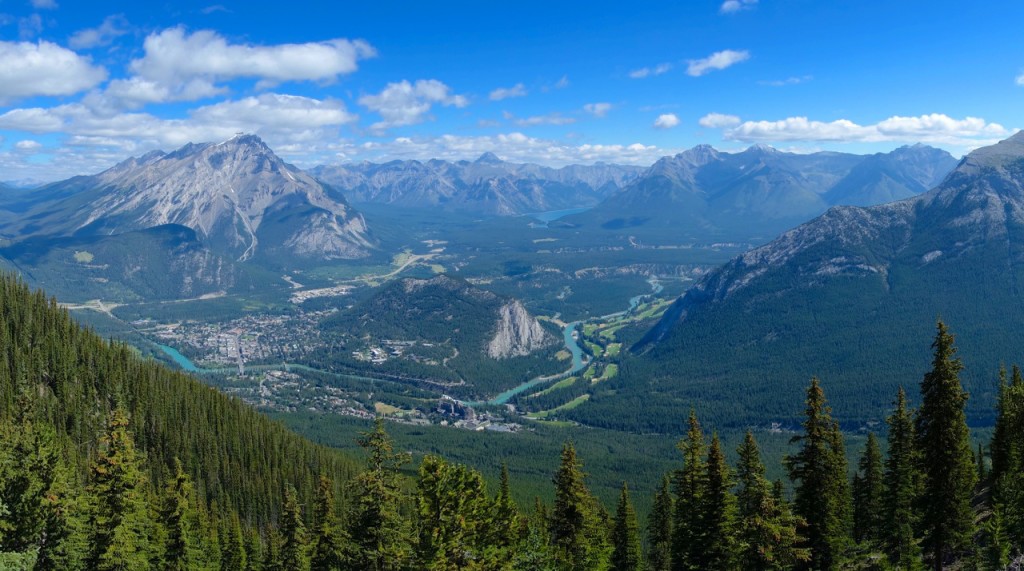
Quarantine rules in Canada: What happens if I get Covid?
Foreign tourists who test positive for Covid while in Canada should self-isolate immediately. Travelers may be required to cover costs of quarantine accommodations.
Those with severe symptoms are advised to call 911 or the local emergency number in Canada.
Canada Proof of Vaccination Requirements for Dining, Travel, and other services
You might be wondering: Do I need a vaccine certificate or Covid test to enter restaurants, public transit, and other services in Canada?
As of June 2022, proof of vaccination is no longer required to board a plane, train or cruise ship when traveling within Canada. Generally it is not required to enter businesses or restaurants.
Each province or territory has the authority to require a proof of vaccination each situation.
Can I travel to Canada in April 2024? Can I travel to Canada this Spring?
Travel to Canada in April is possible for foreign travelers. Read on for details and check back for updates.
What is it like to fly to Canada right now? YYZ Toronto Pearson International Airport? YVR Vancouver International Airport? Masks are no longer required but still strongly recommended. The airports are using enhanced cleaning procedures and hand sanitizer is available throughout the terminals.
As of October 2022 , all persons arriving in Canada will no longer be subject to randomized testing at airports .
Using ArriveCAN is now optional for travelers flying into international airports to submit an Advance CBSA Declaration to save time upon arrival in airports like Toronto, Vancouver or Montréal.
What is it like to drive into Canada right now? Travelers can enter Canada during open hours at land borders . Required documents must be shown at the border.
Check Canada-US border wait times here.
Do I have to quarantine when traveling to Canada? No. Quarantine upon arrival is no longer required in Canada. Persons who test positive for Covid in Canada are asked to quarantine. See above for details.
Does Canada check COVID-19 symptoms of incoming travelers? No. Health screening procedures are no longer required to enter Canada.
Does Canada require a negative Covid 19 test for travelers? No. Covid pre-entry tests and arrival tests are no longer required.
Does Canada require a proof of Coronavirus vaccine for travelers? No . Proof of vaccination is no longer required in Canada.
Do I still need to provide a negative Covid test or quarantine if I have been vaccinated? No. Travelers are no longer required to provide a negative Covid test or quarantine to enter Canada.
Is a booster shot required for travel to Canada? At this time, booster shots are not required in Canada. There is currently no expiration period set for the validity of vaccinations.
What Covid testing options are available for travelers in Canada? U.S. citizens can obtain a COVID-19 test from provincial health authorities or private facilities in Canada.
The cost for private testing varies depending on the location and can exceed $300. Rapid tests for $60 with results in 30 minutes are available by appointment near Toronto Airport .
What healthcare options are available to travelers in Canada who get the virus? Canada hospitals and clinics are open. Canada’s universal healthcare does not pay for visitors.
Testing centers are also available for foreign visitors in some provinces and territories in Canada.
For travel insurance that covers Covid, check out Nomad Insurance by Safety Wing >
What service businesses and restaurants are open in Canada? Essential services, restaurants, bars, and retail shops are open in Canada. Some limitations, such as proof of vaccination requirement, may still be implemented in some provinces.
Check here for restrictions in each province.
Are face masks required in Canada? Wearing of face masks is no longer required in Canada but still recommended.
Are buses running in Canada? Public transportation is available throughout Canada.
Will Canada impose new Covid restrictions? What’s next is difficult to predict. Historically, most countries impose COVID-19 restrictions when strains on the health care system might become unsustainable. Canada has been relatively proactive and “strict” on preventive Covid measures.
How has the Coronavirus impacted Canada?
The coronavirus pandemic has caused a recession and increased unemployment in Canada. Tourism was hit especially hard.
Canada experienced a surge in cases with the Omicron variant. Many provinces reintroduced restrictions. As the situation came under control, Canada started easing travel restrictions.
As of October 2022, Canada ended all travel, testing, and border requirements and restrictions related to COVID-19.
Canada initially started reopening for tourism in summer 2021. As of September 2021, fully vaccinated foreign travelers have been allowed to visit the country without undergoing quarantine.
Canada began COVID-19 vaccination in December 2020. Currently, more than 3/4 of the total population has been fully vaccinated.
For the current situation in Canada, including: total COVID-19 positive cases; total cases in Canada; and COVID-19 testing in Canada, please see the Government of Canada website .
What should you pack for safely traveling in Canada?
😷 Face Masks – Face coverings are recommended in crowded public places. Find N95 masks at Bona Fide > or designer options at Vida >
💊 Medicine – Bring enough prescription and over-the-counter medication for your entire trip to avoid trips to the clinic.
💳 Vaccine Card Holder – Protect that paper CDC card when traveling abroad (if your country doesn’t offer a digital version). Get a simple plastic protector > or Vegan leather clippable > or Leather passport + card combo holder >
👃 Covid self-test – The most studied rapid antigen self-test with FDA emergency authorization. NOT valid to enter countries. Use for your own peace of mind. Order from CVS > or Walmart >
💧 Sealed water bottle – Make sure your reusable water bottle has a lid that’s not exposed to the air. We use one of each of the following: Shop insulated water bottles with protective lid > Shop water bottles with purification filter and protective lid >
✈️ Travel insurance that covers Covid – We’ve started using Nomad Insurance by Safety Wing for affordable evacuation, international medical, and trip coverage.
What do Canada locals and recent travelers say about visiting Canada now?
What is it like to visit Canada right now? It’s our goal to provide regular updates here from real people on the ground, to help potential visitors know what to expect.
The following are subjective opinions only. Official travel guidance can be found above.
September 2023 – Ryan of WaylessTravelers , Canadian: “The current state of tourism is back to normal, like during pre-Covid times. The multiple summer and fall festivals have returned to Montreal, including F1 weekend, Just for Laughs, Jazz festival etc… Restaurants are also very lively and full.
All the local attractions, restaurants, concerts, malls are back to normal operations. No restrictions (masks/gloves/testing) are imposed.
We do recommend to reserve activities and restaurants ahead of time as we have noticed that they do book up usually a few days in advance. We believe this is because a lot of Canadians are preferring to travel more locally due to still some hesitancy of traveling abroad.”
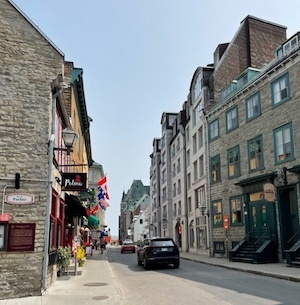
May 2023 – Nick Rosen of The World Overload , American visitor: “I flew to Quebec City and Montreal for a one week vacation in May 2023. There are currently no travel restrictions but some locals and visitors continue to follow Covid guidelines including masks and safe distances. There is easy access to healthcare and testing.
All attractions and food services continue to operate for tourism. Hours may vary depending on day/weekend. Please check ahead when scheduling. Be aware that summer is the time when most construction and repairs are done by the cities you will be visiting.”

January 2023 – Melissa from My Beautiful Passport , Canadian: “Tourism in Ontario is picking up overall, with most events & festivals resuming in 2023, if they didn’t already resume in 2022.
Canada appears ready to welcome tourists back into the country. Niagara Falls and other popular Canadian destinations are lively, restaurants and attractions are open, and people are ready to explore again, wearing masks indoors as encouraged. Hospitals are not currently overwhelmed.”
September 2022 – Michelle, Intentional Travelers, US citizen: “We flew from the US to Canada for a conference in Montreal, Quebec. I submitted our ArriveCAN information a couple days before the flight using the website. It was pretty simple to input our passport number, vaccine dates, and upload a photo of our CDC vaccine cards. Then there was a form for trip details. There was a quick Covid self-assessment form asking about fever, cough, or difficulty breathing. Confirmation included a six-digit code and QR code that we printed and brought to the airport.
After all that, we had more online processes to complete for both airlines on our itinerary (United and Air Canada), including uploading our CDC vaccine cards again. Air Canada’s site did not accept our vaccine card image, but it wasn’t a problem, I guess because we had ArriveCAN done.
To board the flight from US to Canada, we only had to show our passport and ticket. On arrival in Montreal, we only ‘flashed’ our ArriveCAN confirmation to an agent on our way to the machines where we scanned our passports and completed immigration questionnaires, which included just one question about having any Covid symptoms, and took a picture. Arriving around midnight, the process took less than 15 minutes.
We were fortunate all our bags arrived. The baggage claim looked like a luggage graveyard with hundreds of unclaimed suitcases everywhere!”
May 2022 – Mayuri of Canada Crossroads , Canadian resident: “In my province (Alberta, home to the Canadian Rockies) domestic tourism has been flourishing. All the sightseeing spots are open, but some have restricted hours.
Since February (in Alberta, and from April nationwide) things are open, no restrictions in terms of social distancing, masking, access to medical care, restaurants, stores and hotels. In fact many airports are busier than usual (including the country’s busiest Toronto airport – just flew last week). I feel we need to be a little more prepared for summer tourism as many international visitors are wanting to explore Canada.”
March 9, 2022 – Samantha of Continuous Roamer , Canadian resident: “Domestic travel in Canada is straightforward since there are no extra requirements once you have entered the country. However, mask wearing is necessary and some provinces still require a vaccine passport.
The vaccine passport has been removed in Ontario in March. Capacity in Ontario restaurants is now at 100% so it is easier to get a table. Although, free antigen covid tests are extremely difficult to access at pharmacies in Ontario. British Columbia still requires the vaccine passport, therefore lines are longer to enter some establishments while your pass and ID are checked.”
January 20, 2022 – Haley Blackall Travel , Digital Nomad: “My partner and I visited family and worked online in Kelowna BC for 2.5 months from mid-November 2022 to end of January 2022. Tourism in this region of Canada is low, due to winter conditions especially for international visitors. Make sure you have all the required documentation upon arrival, because airline personnel are doing proper checks. If you arrive in Canada from an international destination and are unvaccinated, there is a smooth running process for a mandatory Covid-19 test at the airport upon arrival, and the ArriveCAN app is easy to navigate in which the government keeps a close eye on contact tracing and quarantine requirements. Canadians have quick access to healthcare, including testing for antigen and PCR. After restaurants offering takeout and delivery services only at the beginning of the pandemic, dining in is becoming more popular. Besides the use of masks, life is getting back to normal in Canada.”
January 2022 – Mary from Brbymary, French traveler: “I flew to Vancouver for a week [from Ireland] to visit my partner’s family. Everything was well organised through ArriveCan app. Testing at the airport was easy although a bit behind and people respected rules in general. Plan some additional time to do tests at the airport and to do tests on arrival even if you have an appointment.”
December 2021 – Federica of Globetrottoise , Canadian nomad: “I would say Canada is a pretty safe destination at the moment, especially outside the big cities. I’ve been road tripping around the Yukon, British Columbia and Alberta in the past few months and always felt safe and able to enjoy most attractions, from museums to national parks. Canada is open to vaccinated travellers only and health regulations are in place in most public places. Masks are mandatory inside almost everywhere and in some provinces the access to cafes restaurants, movie theaters, libraries, etc is possible only with a valid proof of vaccination. Attractions are mostly open everywhere and access to covid testing is pretty easy (but quite pricey).”
November 12, 2021 – Nicole of Traveling BC , Canadian citizen: “While businesses are still operating under restrictions, in general, many rules have lifted and now it’s ‘full steam ahead’ in the tourism industry. Some touristy areas (the coasts and the Rockies) even became quite busy over the summer, since everyone wanted to go on a much-needed vacation. If you visit, you’ll have to show a negative COVID test and be required to wear a mask, socially distance, and show your vaccination passport!
Most people and businesses follow the restrictions and around 75% of people are fully vaccinated, although compliance with restrictions and vaccinations varies between provinces and cities. Accessing COVID testing is easy and quick, although you’ll have to pay for the test if you’re traveling. A lot of healthcare has moved to online appointments, and some hospitals are still overwhelmed in areas with lots of COVID cases. Businesses are open to tourists, but many operate under reduced hours, lower capacities and may have halted certain services/activities due to COVID. You will often have to book activities online or by phone, and make sure to wear a mask and bring proof of vaccination, or businesses will deny you entry.”
November 2021 – Chris, American digital nomad: “I flew to Newfoundland for one month in October and November of 2021. Everything seems to be open again, though every place where you would take off a mask (such as a restaurant) requires you to show proof of vaccination. People seem very respectful and friendly, happy to show you around. There is voluntary contact tracing check-ins at a lot of locations. There don’t seem to be long lines anywhere. Testing is free and readily available.”
October 9, 2021 – Nicole, Go Far Grow Close , Vancouver BC, Canadian resident: “Visitors are very much welcome. There are strict regulations for visitors to enter Canada (fully vaccinated) so we know that they are as safe or safer than the locals. So long as they follow the rules – wear masks indoors – no one cares. I feel that we are very travel ready in Canada. If you feel ill, there are free drive through covid testing sites. Hospitals are available. Local attractions, food services, and all amenities are open so long as you wear masks indoors (or when you get up in a restaurant), social distance and follow whatever other rules might be in place. Restaurants are still not at full capacity but getting there. Movie theatres are open. We eat out regularly, go to movies, and do not feel restricted.”
September 2021 – Kathy, American traveler: “We planned to spend two months in British Columbia, Canada. We had to show proof of vaccination and have a negative COVID test within 72 hours of crossing. We managed to get a test at a local CVS pharmacy (for free) and got our results in about 36 hours. Whew! There is another place to get a test in Seattle with guaranteed results but they cost $165 each. We also had to go to the website ArrivCan.com and answer questions and download our vaccine cards. Finally, in the early morning hours of August 9th we arrived at the Canadian Border just south of Vancouver, BC at around 4:30 a.m. There were approximately 20 cars/trucks in two lines. Unfortunately, the line we picked took forever so when it finally turned 6:00 a.m. another agent opened a new gate and we were there and across the border in about 10 minutes. We have now been in BC Canada for over a month. There are very few U.S. citizens here but lots of traveling Canadians. In fact, their COVID numbers have spiked so it is now a requirement to wear masks in stores/grocery stores and entering and leaving restaurants. No problem. We feel safe doing that and know that even though there is some resistance, most Canadians are fully vaccinated. In fact, as of August 13th restaurants and bars and other certain businesses now require that people show proof of vaccination to enter. I am in complete support. We feel grateful we were able to spend some of our summer in this beautiful country.”
Planning a trip to Canada?
Check out our other Canada travel resources: – The Scenic Route: Kelowna to Banff – The Best of Banff on a Budget – Kelowna: British Columbia’s Hidden Gem – Montreal, Quebec Summer Trip Guide
– 5 Awesome Things to Do in Vancouver, BC in Summer
If you have questions or updates about travel to Canada during the Coronavirus crisis or post-pandemic, please let us know in the comments below.
~ Pin this post for later or share with friends ~
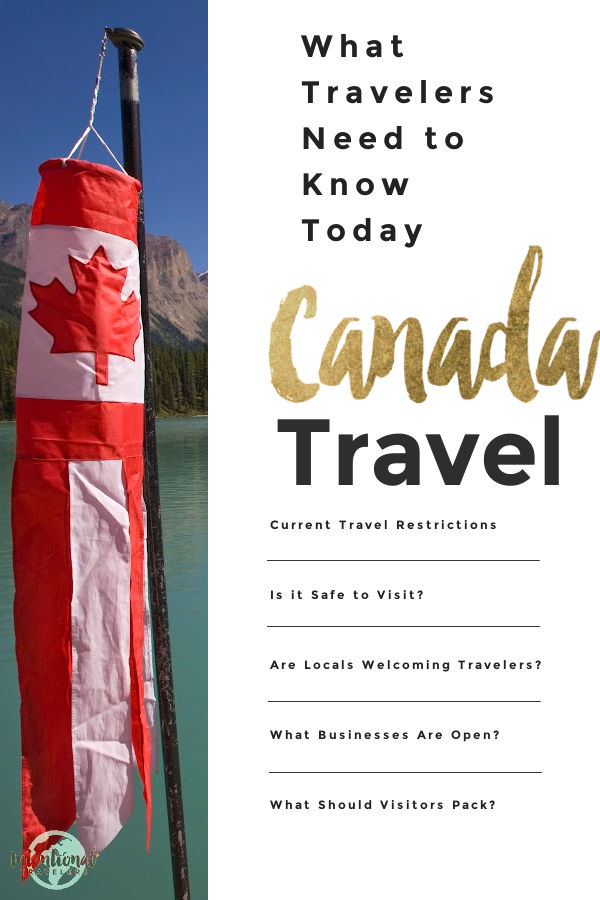
Disclaimer: Please note, travel restrictions change frequently. Readers must take responsibility for verifying information through official sources like the State Department and CDC, in respect to their specific situations. No responsibility can be accepted by Intentional Travelers for action or inaction as a result of information provided through IntentionalTravelers.com. Any information provided here is issued as general information only.
Similar Posts

Thailand travel requirements 2024: What travelers need to know
We aim to keep this post updated about Thailand travel in 2024 with official Thailand travel restrictions, requirements, and health and safety guidance. Our goal is to help you make informed decisions so you can travel confidently, safely, and responsibly in this new post-pandemic world of ours. Since travel restrictions can vary by citizenship, we…
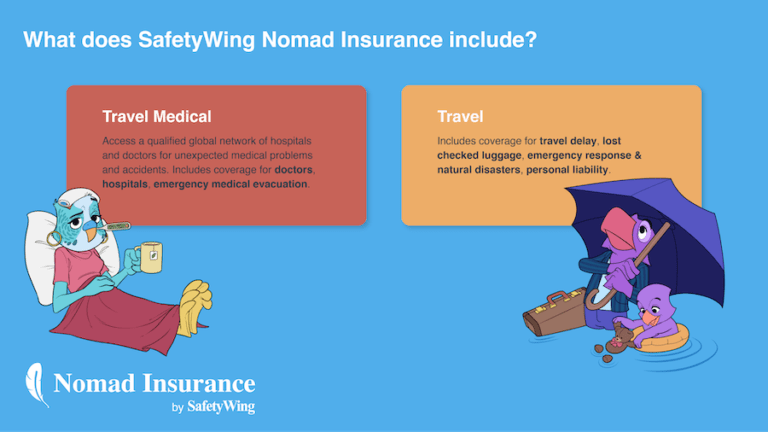
SafetyWing Nomad Insurance Review 2024 (with Covid Coverage)
As we returned to travel during the pandemic, Jedd and I felt that trip insurance and travel medical insurance were more important than ever for our trips. We first learned about SafetyWing at a digital nomad conference. With further research, specifically considering all the uncertainties around Covid-19 and travel restriction changes, we decided to use…
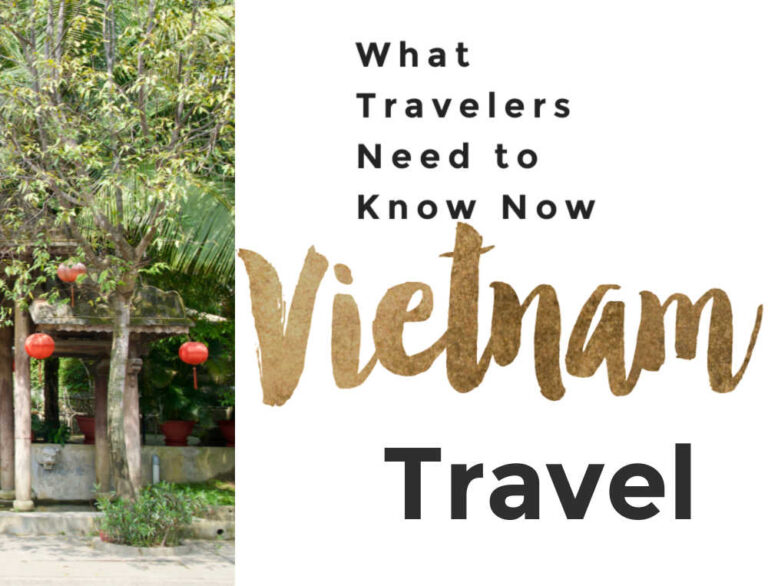
Vietnam travel requirements 2024: What travelers need to know
We aim to keep this post updated about Vietnam travel in 2024 with official Vietnam travel restrictions, requirements, and health and safety guidance. Our goal is to help you make informed decisions so you can travel confidently, safely, and responsibly in this new post-pandemic world of ours. Vietnam is a destination close to our hearts….
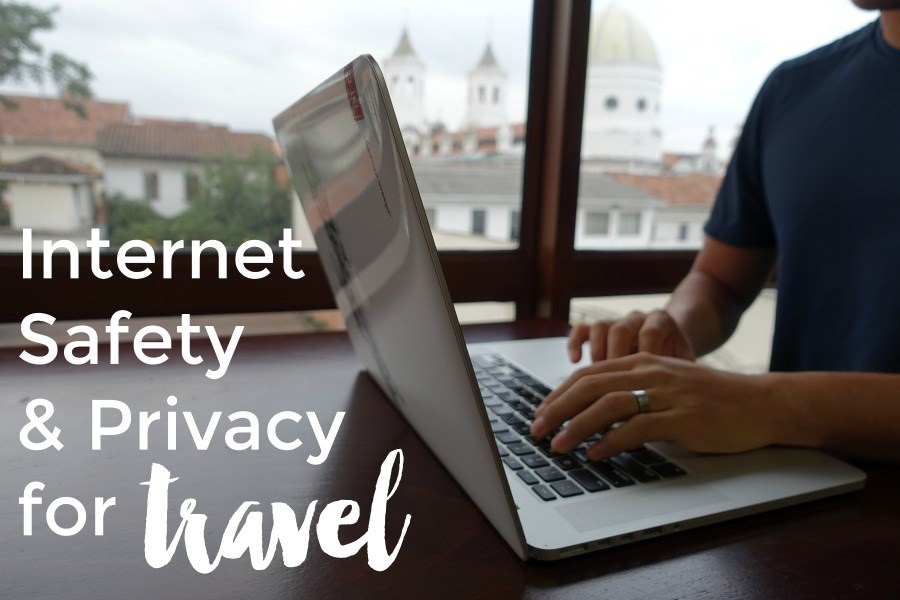
How to Protect Your Privacy and Information on the Internet While Traveling
One of the most common things people are concerned about when they travel is their personal safety and security. You can’t control every variable to guarantee your safety, but you can mitigate risk by being intentional about your actions. That’s why common sense advice such as: hide your valuables, don’t display large amounts of cash…
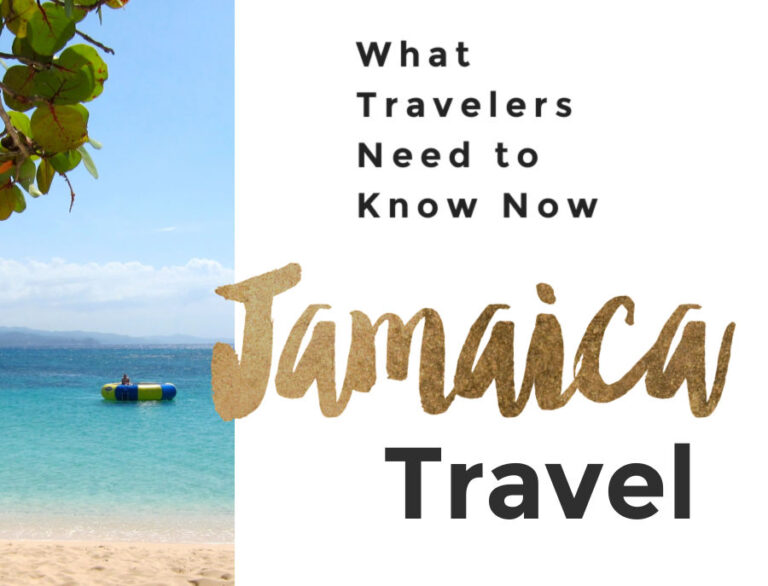
Jamaica travel requirements 2024: What travelers need to know
We aim to keep this post updated about Jamaica travel in 2024 with official Jamaica travel restrictions, requirements, and health and safety guidance. Our goal is to help you make informed decisions so you can travel confidently, safely, and responsibly in this new post-pandemic world of ours. At the end of the post, we share…

Merida Mexico travel requirements 2024: What travelers need to know
We aim to keep this post updated about Merida Mexico travel in 2024 with official Yucatan travel restrictions, requirements, and health and safety guidance. Our goal is to help you make informed decisions so you can travel confidently, safely, and responsibly in this new post-pandemic world of ours. The Covid situation in Merida, Mexico is…
Canada is still requiring a negative covid test 72 hours before embarkation when on a cruise ship entering any Canadian ports. This has not been changed. The change is for land ,and air and sea other than a cruise ship
Thank you for this clarification. We have updated our post to better reflect requirements for cruise ships.
Leave a Reply Cancel reply
Your email address will not be published. Required fields are marked *
This site uses Akismet to reduce spam. Learn how your comment data is processed .
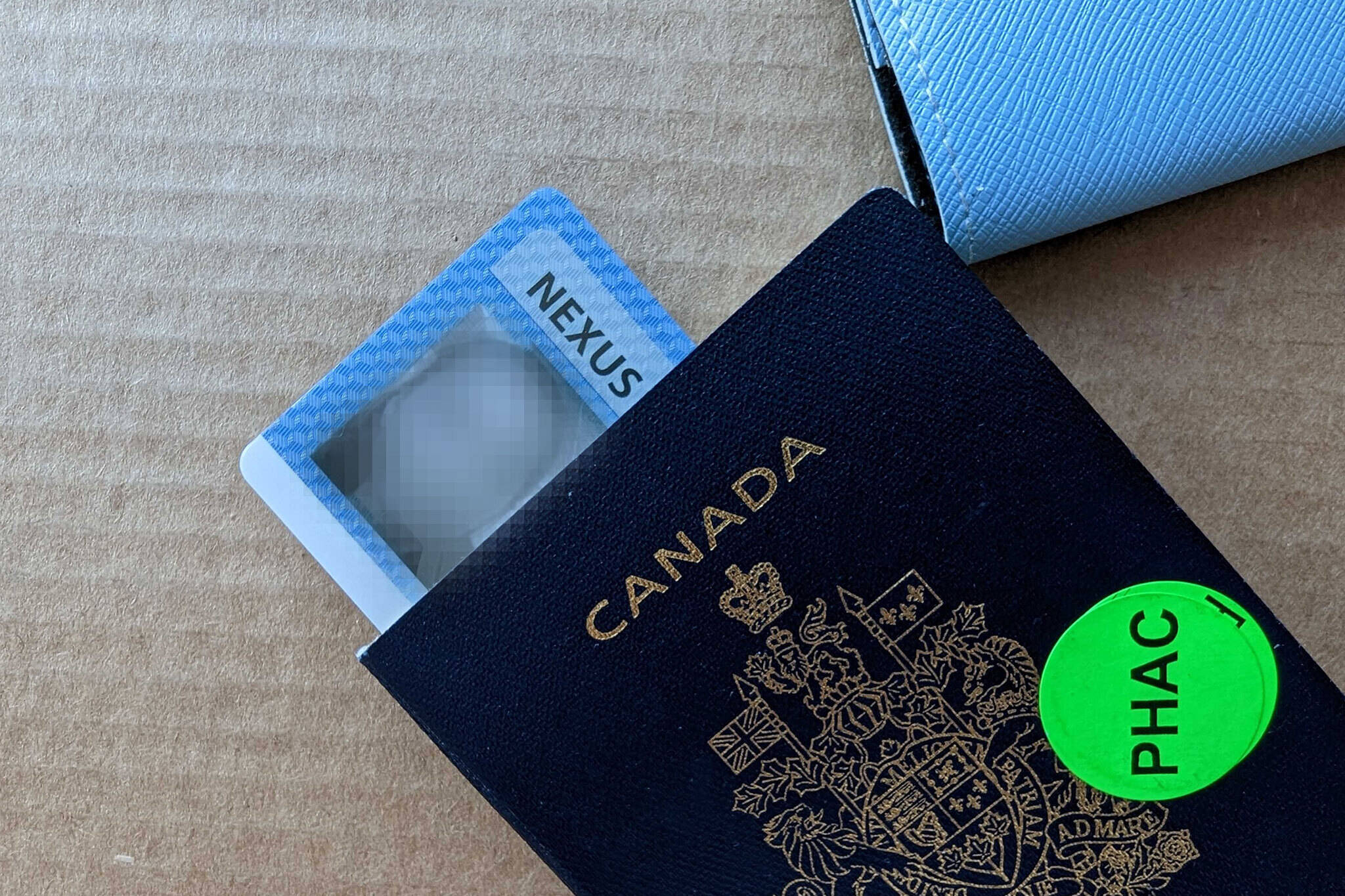
It's about to get much easier for Canadians to travel to the United States
Latest Videos
Practically all travel conditions have returned to normal since the height of cross-border restrictions in 2020, all except for one.
As of March 2023, a full three years after the first travel restrictions were imposed on Canadians, the Canada Border Services Agency (CBSA) and U.S. Customs and Border Protection (CBP) have still yet to fully reinstate their joint NEXUS enrolment centres in Canadian airports.
That will all change in the coming weeks as the CBSA and U.S. CBP move forward with their commitment to reopen all airport NEXUS enrolment centres this spring.
The move is designed to not only expand the program's capacity, but also improve the delivery time of NEXUS cards for the thousands of travellers who request memberships every month.
A new two-step enrolment option for air travellers will involve the Canadian portion of the application completed at enrolment centres staffed with CBSA officers, and a second step where U.S. CBP officers interview NEXUS applicants at Canadian airport preclearance locations when they depart Canada to fly to the U.S.
Any NEXUS applicants conditionally approved or are renewing existing memberships, and who require an interview, will be able to book the Canadian portion of their interview at participating airports through the Trusted Traveller Programs scheduler.
Launched in 2000, the NEXUS program is designed to ease the headaches associated with U.S-Canada border crossings by fast-tracking frequent cross-border travellers through security .
Demand for NEXUS cards is very high since the lifting of travel restrictions, and there have been over 300,000 completed enrolments since October, cutting down on the peak backlog of 130,000 this past summer.
As of Monday March 20, travellers can book interviews at select Canadian airports starting on the following dates.
- Halifax Stanfield International Airport (YHZ)
- Winnipeg James Armstrong Richardson International Airport (YWG)
- Vancouver International Airport (YVR)
- Calgary International Airport (YYC)
- Edmonton International Airport (YEG)
- Montreal-Trudeau International Airport (YUL)
- Toronto Pearson International Airport (YYZ)
- Ottawa Macdonald-Cartier International Airport (YOW)
Marco Mendicino, MP and federal Minister of Public Safety, calls the expansion of NEXUS "a win-win for Canada and the United States," and hails the latest "new, flexible solutions to cut wait times and enlarge the program."
"The reopening of NEXUS airport enrolment centres in Canada is making a major difference – reducing the backlog, expanding capacity and helping more people get NEXUS cards," added Mendicino, citing the program's contribution to creating "billions in economic activity on both sides of the border."
Join the conversation Load comments
Latest in Travel
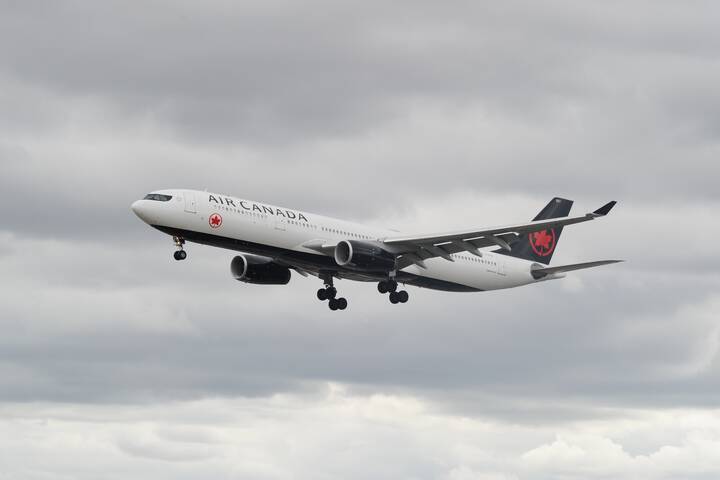
Flight with 290 passengers reports 'multiple failures' on approach to Toronto airport
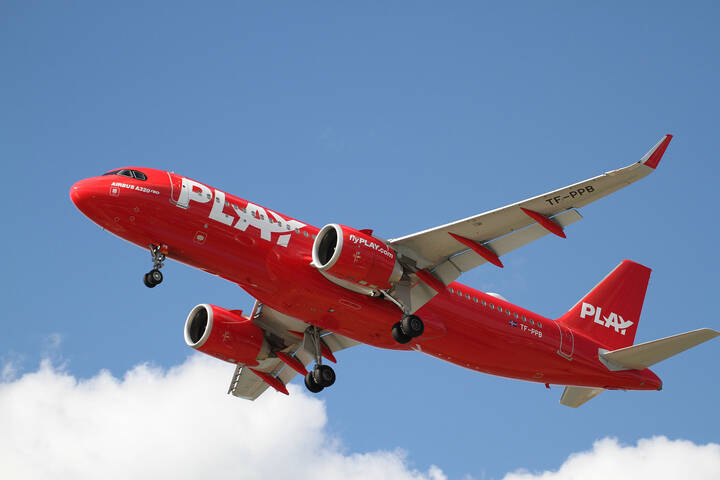
Low-cost airline is having a huge sale with cheap flights from near Toronto
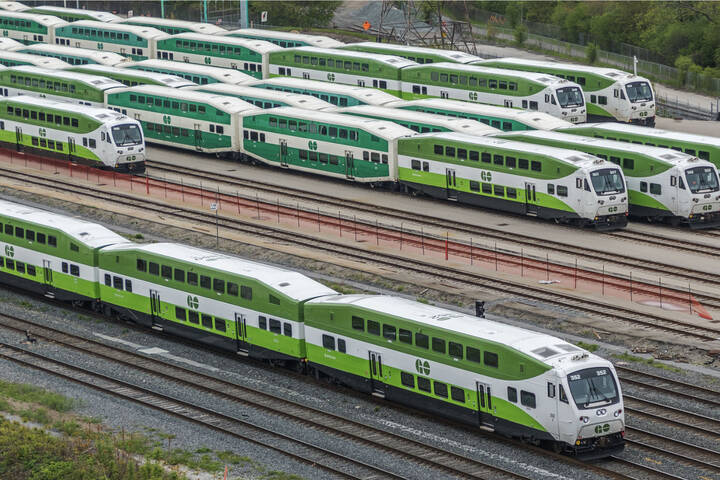
Ontario embarking on biggest GO Train expansion in more than a decade
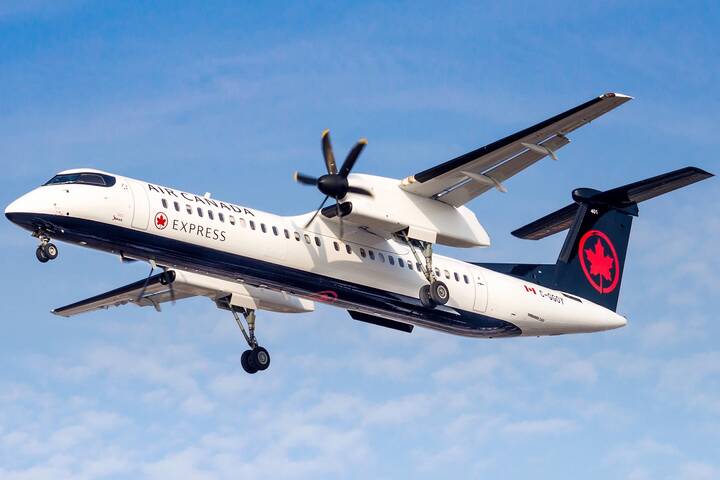
Pilot of Air Canada flight scolded after 'incredibly dangerous' Toronto landing

5 luxury hotels and resorts in Ontario for a lavish getaway

This town in Ontario is littered with 'ghost schools' that have an uncertain future
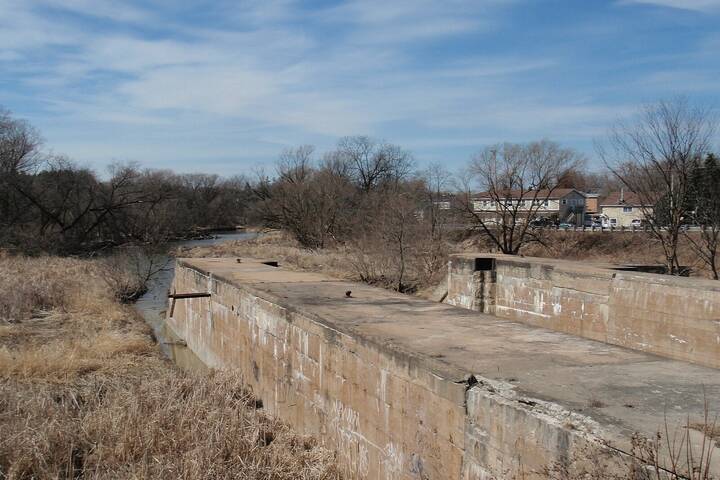
You can explore an abandoned 100-year-old canal in a small town in Ontario

Breathtaking multi-day train ride from Toronto takes you across 5 provinces

An official website of the United States government
Here’s how you know

Official websites use .gov A .gov website belongs to an official government organization in the United States.
Secure .gov websites use HTTPS A lock ( Lock A locked padlock ) or https:// means you’ve safely connected to the .gov website. Share sensitive information only on official, secure websites.

- For International Visitors
Know Before You Visit
Almost a million individuals enter the U.S. daily. Everyone arriving at a port of entry to the U.S. is subject to inspection by Customs and Border Protection officers for compliance with immigration, customs and agriculture regulations. The more international travelers know about what to expect, the easier and quicker the process becomes.
Related Travel Resources
- Money and Other Monetary Instruments
- Prohibited and Restricted Items
An official website of the United States government
Here’s how you know
Official websites use .gov A .gov website belongs to an official government organization in the United States.
Secure .gov websites use HTTPS A lock ( Lock Locked padlock icon ) or https:// means you’ve safely connected to the .gov website. Share sensitive information only on official, secure websites.

COVID-19 international travel advisories
If you plan to visit the U.S., you do not need to be tested or vaccinated for COVID-19. U.S. citizens going abroad, check with the Department of State for travel advisories.
COVID-19 testing and vaccine rules for entering the U.S.
- As of May 12, 2023, noncitizen nonimmigrant visitors to the U.S. arriving by air or arriving by land or sea no longer need to show proof of being fully vaccinated against COVID-19.
- As of June 12, 2022, people entering the U.S. no longer need to show proof of a negative COVID-19 test .
U.S. citizens traveling to a country outside the U.S.
Find country-specific COVID-19 travel rules from the Department of State.
See the CDC's COVID-19 guidance for safer international travel.
LAST UPDATED: December 6, 2023
Have a question?
Ask a real person any government-related question for free. They will get you the answer or let you know where to find it.
We’re sorry, this site is currently experiencing technical difficulties. Please try again in a few moments. Exception: request blocked
Update April 12, 2024
Information for u.s. citizens in the middle east.
- Travel Advisories |
- Contact Us |
- MyTravelGov |
Find U.S. Embassies & Consulates
Travel.state.gov, congressional liaison, special issuance agency, u.s. passports, international travel, intercountry adoption, international parental child abduction, records and authentications, popular links, travel advisories, mytravelgov, stay connected, legal resources, legal information, info for u.s. law enforcement, replace or certify documents.
Before You Go
Learn About Your Destination
While Abroad
Emergencies
Share this page:
Travel Advisory July 17, 2023
Canada - level 1: exercise normal precautions.
Reissued with obsolete COVID-19 page links removed.
Exercise normal precautions in Canada.
Read the Country Information page for additional information on travel to Canada.
If you decide to travel to Canada:
- Enroll in the Smart Traveler Enrollment Program (STEP) to receive Alerts and make it easier to locate you in an emergency.
- Follow the Department of State on Facebook and Twitter .
- Review the Country Security Report for Canada.
- Prepare a contingency plan for emergency situations. Review the Traveler’s Checklist .
- Visit the CDC page for the latest Travel Health Information related to your travel. Exercise normal precautions in Canada.
Embassy Messages
View Alerts and Messages Archive
Quick Facts
Valid at time of entry
One page required.
Not required for stays under 180 days
Embassies and Consulates
U.S. Embassy Ottawa
490 Sussex Drive Ottawa, Ontario K1N 1G8 Canada Telephone: +1 (613) 688-5335 Emergency After-Hours Telephone: +1 (613) 238-5335 Fax: +1 (613) 688-3082 Email: [email protected]
The Ottawa consular district includes the counties of Kingston, Lanark, Leeds, Prescott, Refrew, Russell, and Stormont in Eastern Ontario, and those parts of the Québec regions of Outaouais and Abitibi-Témiscamingue near Ottawa.
U.S. Consulate General Montreal
1134 Rue Ste- Catherine West Montréal, Quebec H3B 1H4 Canada Telephone: +1 (514) 398-9695 Emergency After-Hours Telephone: +1 (416) 645-9124 Fax: +1 (514) 398-9748 Email: [email protected]
The Montreal consular district includes Greater Montreal and the regions of Southern Quebec Province (Laurentides, Lanaudiere, Laval, Montreal, Montregie, Estrie, and the southern parts of Centre-du-Quebec), including Joliete, Drummondville, and Sherbrooke.
U.S. Consulate General Toronto
360 University Ave Toronto, Ontario M5G 1S4 Canada Telephone: +1 (416) 595-1700 Emergency After-Hours Telephone: +1 (416) 201-4056 Fax: +1 (416) 595-5466 Email: [email protected]
The consular district includes the province of Ontario except for the counties of Kingston, Lanark, Leeds, Prescott, Refrew, Russell, and Stormont, which are served by the U.S. Embassy in Ottawa.
U.S. Consulate General Vancouver
1075 West Pender Street Vancouver, British Columbia V6E 2M6 Canada Telephone: +1 (604) 685-4311 Emergency After-Hours Telephone: +1 (604) 685-4311 Fax: +1 (604) 685-7175 Email: [email protected]
The consular district includes British Columbia and the Yukon Territory.
U.S. Consulate General Halifax
Purdy's Wharf Tower II 1969 Upper Water Street, Suite 904 Halifax, Nova Scotia B3J 3R7 Canada Telephone: +1 (902) 429-2480 Emergency After-Hours Telephone: +1 (902) 429-2480, Press 1 Email: [email protected]
The Halifax consular district includes New Brunswick, Newfoundland and Labrador, Nova Scotia, Prince Edward Island, and the French islands of Saint Pierre and Miquelon.
U.S. Consulate Winnipeg
201 Portage Avenue, Suite 860 Winnipeg, Manitoba R3B 3K6 Canada Telephone: +1 (204) 940-1800 Emergency After-Hours Telephone: +1 (403) 266-8962 and press "0" for assistance (Consulate General Calgary) Fax: +1 (204) 940-1809
The Consulate in Winnipeg provides only emergency services for U.S. citizens. Routine services such as visas, passports and notarials are handled at other U.S. Consulates General, primarily Calgary.
U.S. Consulate General Quebec 2, rue de la Terrasse Dufferin (Vieux Quebec, behind Chateau Frontenac) Quebec, Quebec G1R 4T9 Canada Telephone: +1 (418) 692-2095 Emergency After-Hours Telephone: +1 (418) 692-2096 Fax: +1 (418) 692-4640 Email: [email protected]
The consular district includes Quebec City and those regions of Quebec Province to the North and East of the Montreal and Ottawa Districts (indicated above) – to include the area around Saguenay/Lac Saint-Jean, Rimouski and the Gaspé Peninsula – as well as the Territory of Nunavut.
U.S. Consulate General Calgary 615 Macleod Trail S.E., 10th Floor Calgary, Alberta T2G 4T8 Canada Telephone: +1 (403) 266-8962 Fax: +1 (403) 264-6630 Email: [email protected] The consular district includes Alberta, Manitoba, Saskatchewan, and the Northwest Territories, excluding Nunavut.
Destination Description
Learn about the U.S. relationship to countries around the world.
Entry, Exit and Visa Requirements
For tourist visits to Canada of less than 180 days, U.S. citizens do not need visas. Other types of travel generally require visas. Visit the Immigration, Refugees and Citizenship Canada (IRCC) website for current information.
If you have a criminal record, you may be unable to enter Canada. To determine whether you are criminally inadmissible and get information about how to overcome this finding, refer to the IRCC website . Canada Border Services Agency (CBSA) officials determine if you can enter Canada in accordance with Canadian law.
Travel Programs: Both the U.S. and Canadian governments urge frequent travelers to join the NEXUS trusted traveler program .
Entry into Canada: Canadian law requires that all persons entering Canada carry proof of citizenship and identity. A valid U.S. passport, passport card, or NEXUS card satisfies these requirements for U.S. citizens.
Children under 16 only need proof of U.S. citizenship.
Entry into the United States: When traveling by air from Canada, U.S. citizens must present a U.S. passport book or other approved identification document. The U.S. Customs and Border Protection (CBP) website provides a full list of allowable documents.
Travel with Minors: If you plan to travel to Canada with a minor for whom you do not have full legal custody, CBSA may require a letter of authorization from the minor’s parents or legal guardian(s). Please refer to the CBSA website for more details.
Private Boaters Entering Canada: Canadian law requires all foreign private boaters, including recreational vessels, to present themselves upon their arrival in Canada to the CBSA. See the CBSA website for relevant reporting requirements.
Private Boaters Exiting Canada: Boaters may report their arrival to the United States or apply for a registered boater program using the CBP Reporting Offsite Arrival – Mobile (CBP ROAM) app. Please visit the CBP ROAM webpage for more information.
The U.S. Department of State is unaware of any HIV/AIDS entry restrictions for visitors to Canada. For information on restrictions for HIV positive foreign residents of Canada visit the IRCC website .
Find information on dual nationality , prevention of international child abduction and customs regulations on our websites.
Safety and Security
911 is the emergency telephone number in Canada.
Crime: Although Canada generally has a lower crime rate than the United States, violent crimes occur throughout the country, especially in urban areas. Criminals may target parked cars, especially in large cities and popular tourist destination, for opportunistic smash-and-grab thefts. Do not leave unattended possessions in a vehicle, even in the trunk. Some jurisdictions such as Montreal, Toronto, and Vancouver may fine you for leaving your car doors unlocked or for leaving valuables in view. Pickpockets may target you, especially in popular tourist areas. Exercise caution. Safeguard yourself and your property.
Demonstrations occur frequently. They may take place in response to political or economic issues, on politically significant holidays, and during international events.
- Demonstrations can be unpredictable, avoid areas around protests and demonstrations.
- Check local media for updates and traffic advisories.
While there is a very small likelihood of violence at a political gathering in Canada, we strongly encourage U.S. citizens to avoid all protests and demonstrations and maintain a high level of vigilance and practice good situational awareness when traveling abroad.
International Financial Scams: See the Department of State and the FBI pages for information.
Victims of Crime: U.S. citizen victims of sexual assault are encouraged to contact the U.S. Embassy for assistance. Report crimes to the local police at 911 and contact the U.S. Embassy at +1(613) 688-5335. Remember that local authorities are responsible for investigating and prosecuting crime.
See our webpage on help for U.S. victims of crime overseas .
• Help you find appropriate medical care
• Assist you in reporting a crime to the police
• Contact relatives or friends with your written consent
• Provide general information regarding the victim’s role during the local investigation and following its conclusion
• Provide a list of local attorneys
• Provide our information on victim’s compensation programs in the U.S.
• Provide an emergency loan for repatriation to the United States and/or limited medical support in cases of destitution
• Help you find accommodation and arrange flights home
• Replace a stolen or lost passport
Domestic Violence: U.S. citizen victims of domestic violence are encouraged to contact the U.S. Embassy or Consulates for assistance.
Tourism: The tourism industry is generally regulated and rules with regard to best practices and safety inspections are regularly enforced. Hazardous areas/activities are identified with appropriate signage and professional staff is typically on hand in support of organized activities. In the event of an injury, appropriate medical treatment is widely available throughout the country.
Outside of a major metropolitan center, it may take more time for first responders and medical professionals to stabilize a patient and provide life-saving assistance. If you are considering travel outside of populated areas, particularly in the northern Arctic territories, you need to know that search and rescue capabilities are limited because of extreme isolation and the harsh climate. You must be prepared for significant delays in receiving emergency assistance in these areas and plan accordingly.
U.S. citizens are encouraged to purchase medical evacuation insurance .
Local Laws & Special Circumstances
Criminal Penalties: You are subject to local laws. If you violate local laws, even unknowingly, you may be expelled, arrested, or imprisoned. Individuals establishing a business or practicing a profession that requires additional permits or licensing should seek information from the competent local authorities, prior to practicing or operating a business.
Furthermore, some laws are also prosecutable in the United States, regardless of local law. For examples, see our website on crimes against minors abroad and the Department of Justice website.
Arrest Notification: If you are arrested or detained, ask police or prison officials to notify the U.S. Embassy immediately. See our webpage for further information.
Controlled Substances: Canadian law prohibits possession and trafficking of controlled substances and narcotics, including some substances that may be legal to possess under the law of certain U.S. states. Canada has legalized the personal consumption of recreational cannabis, but Canadian law prohibits taking cannabis across Canada’s national borders . Drug smugglers risk substantial fines, a permanent bar from Canada, and imprisonment.
Counterfeit and Pirated Goods: Although counterfeit and pirated goods are prevalent in many countries, they may still be illegal according to local laws. You may also pay fines or have to give them up if you bring them back to the United States. See the U.S. Department of Justice website for more information.
Faith-Based Travelers: See the following webpages for details:
- Faith-Based Travel Information
- International Religious Freedom Report – see country reports
- Human Rights Report – see country reports
- Hajj Fact Sheet for Travelers
- Best Practices for Volunteering Abroad
Firearms : Canada controls firearms more strictly than the United States. Violation of firearms restrictions may result in prosecution and imprisonment.
Visitors bringing any firearms or ammunition into Canada must declare the firearms in writing using a Non-Resident Firearm Declaration form. If you plan to borrow and use a firearm in Canada, you must obtain a Temporary Firearms Borrowing License in advance. You must present these forms in triplicate and sign them in front of a CBSA officer at the border. (It is not possible to make photocopies at the border). Full details and downloadable forms are available at the Canadian Firearms Program website .
Canadian law requires officials to confiscate firearms, ammunition, and other weapons from persons crossing the border who do not declare having the items in their possession. Officials will not return confiscated firearms, ammunition, and weapons and possession of any of these items may result in your arrest and imprisonment. You should inspect all belongings thoroughly before traveling to Canada to avoid the accidentally importing firearms, ammunition, or other weapons.
LGBTQI+ Travelers: There are no legal restrictions on same-sex sexual relations or the organization of LGBTQI+ events in Canada. See our LGBTQI+ Travel Information page and section 6 of our Human Rights report for further details.
Pornography: Canada has strict laws concerning child pornography, and in recent years there has been an increase in random checks of electronic media of travelers entering Canada.
Canadian officials may search your computers, cell phones, and other electronic devices without a warrant at the border and illegal content can result in the seizure of the device as well as detention, arrest, and prosecution of the bearer.
Tax Issues: For information on U.S. Federal tax issues, please refer to the Internal Revenue Service (IRS) website for international taxpayers .
- Refer to this link for reporting requirements regarding Foreign Bank and Financial Accounts (FBAR) .
- Refer to this link for information on the Foreign Account Tax Compliance Act (FATCA) .
- Refer to this link for information about the Voluntary Disclosure Practice .
Travelers with Disabilities: The law in Canada prohibitsdiscrimination against persons with physical or mental disabilities and the law is enforced. Social acceptance of persons with disabilities in public is as prevalent as in the United States. For more information, visit the Accessibility Standards Canada website .
Students: See our Students Abroad page and FBI travel tips .
Women Travelers: See our travel tips for Women Travelers .
For emergency services in Canada, dial 911 . Ambulance services are widely available.
We do not pay medical bills. Be aware that U.S. Medicare/Medicaid does not apply overseas. Most hospitals and doctors overseas do not accept U.S. health insurance.
Medical Insurance: Make sure your health insurance plan provides coverage overseas. Most care providers overseas only accept cash payments. See our webpage for more information on insurance coverage. Visit the U.S. Centers for Disease Control and Prevention for more information on type of insurance you should consider before you travel overseas.
We strongly recommend supplemental insurance to cover medical evacuation.
Always carry your prescription medication in original packaging, along with your doctor’s prescription. Check with Health Canada to ensure the medication is legal in Canada.
Healthcare in Canada : The level of public health and sanitation in Canada is high. Adequate health facilities are available throughout Canada. Canada’s medical care is of a high standard but is government controlled. Access to ongoing medical care is difficult for temporary visitors who are not members of a Canadian province’s government-run health care plan. Many physicians will not take new patients. Specialist care is only by referral and may take months to obtain. Although trauma-care is on par with that in the United States, emergency room waits for non-life threatening problems can be very long. Some health care professionals in the Quebec may only speak French.
The U.S. Embassy maintains a list of doctors and hospitals . We do not endorse or recommend any specific medical provider or clinic.
Vaccinations: Be up-to-date on all CDC-recommended vaccinations .
Further health information:
World Health Organization U.S. Centers for Disease Control and Prevention
Air Quality: Visit AirNow Department of State for information on air quality at U.S. Embassies and Consulates.
Medical Tourism and Elective Surgery: We strongly recommend supplemental insurance to cover medical evacuation in the event of unforeseen medical complications.
Pharmaceuticals: U.S. Customs and Border Protection and the Food and Drug Administration are responsible for rules governing the transport of medication back to the United States. Medication purchased abroad must meet their requirements to be legally brought back into the United States. Medication should be for personal use and must be approved for usage in the United States. Please visit the U.S. Customs and Border Protection and the Food and Drug Administration websites for more information.
Assisted Reproductive Technology and Surrogacy: If you are considering traveling to Canada to have a child through use of assisted reproductive technology (ART) or surrogacy, please see our ART and Surrogacy Abroad page .
Travel and Transportation
Road Conditions and Safety: As in the United States, all emergency assistance in Canada can be reached by dialing 911.
For detailed information on road conditions throughout Canada, as well as links to provincial government websites, please see the Transport Canada website or the Canadian Automobile Association (CAA) website. The CAA honors American Automobile Association memberships. Automobile warranties of vehicles purchased in the United States may not be valid in Canada.
Winter travel can be dangerous due to heavy snowfalls and hazardous icy conditions. Some provinces require snow tires. CAA has tips for winter driving . Both winter conditions and wildfires may prompt the sudden closure of highways. Provincial ministries of transport typically post closures and other alerts about road conditions on their websites.
Traffic Laws: Driving in Canada is similar to driving in many parts of the United States. Distances and speeds, however, are posted in kilometers per hour and some signs, particularly in Québec, may only be in French. U.S. driver’s licenses are valid for visitors in Canada. Proof of auto insurance is required. U.S. auto insurance is accepted for tourists in Canada. For specific information concerning Canadian driving permits, mandatory insurance, and entry regulations, please contact the Canadian National Tourist Organization .
Some provinces require drivers to keep their vehicles’ headlights on during the day and some have banned driving while using a hand-held cell phone. Motorcycles cannot share a lane, and safety helmets for motorcycle riders and passengers are mandatory.
It is illegal to take automobile radar detectors into Québec, Ontario, Manitoba, the Yukon, or the Northwest Territories, regardless of whether they are used. Police may confiscate radar detectors and impose substantial fines.
Drivers approaching border crossings into the United States may encounter traffic backups. Drivers should be alert, as lane restrictions at border approaches exist for drivers in NEXUS and FAST expedited inspection programs.
Public Transportation: Public transportation options vary across Canada, but all cities and most major towns have a public transit system .
Aviation Safety Oversight: The U.S. Federal Aviation Administration (FAA) has assessed the government of Canada’s Civil Aviation Authority as being in compliance with International Civil Aviation Organization (ICAO) aviation safety standards for oversight of Canada’s air carrier operations. Further information may be found on the FAA’s safety assessment page .
Maritime Travel: Mariners planning travel to Canada should also check for U.S. maritime advisories and alerts . Information may also be posted to the U.S. Coast Guard homeport website , and the NGA broadcast warnings .
For additional travel information
- Enroll in the Smart Traveler Enrollment Program (STEP) to receive security messages and make it easier to locate you in an emergency.
- Call us in Washington, D.C. at 1-888-407-4747 (toll-free in the United States and Canada) or 1-202-501-4444 (from all other countries) from 8:00 a.m. to 8:00 p.m., Eastern Standard Time, Monday through Friday (except U.S. federal holidays).
- See the State Department’s travel website for the Worldwide Caution and Travel Advisories .
- Follow us on Twitter and Facebook .
- See traveling safely abroad for useful travel tips.
Review information about International Parental Child Abduction in Canada . For additional IPCA-related information, please see the International Child Abduction Prevention and Return Act ( ICAPRA ) report.
Travel Advisory Levels
Assistance for u.s. citizens, learn about your destination, enroll in step.

Subscribe to get up-to-date safety and security information and help us reach you in an emergency abroad.
Recommended Web Browsers: Microsoft Edge or Google Chrome.
Check passport expiration dates carefully for all travelers! Children’s passports are issued for 5 years, adult passports for 10 years.
Afghanistan
Antigua and Barbuda
Bonaire, Sint Eustatius, and Saba
Bosnia and Herzegovina
British Virgin Islands
Burkina Faso
Burma (Myanmar)
Cayman Islands
Central African Republic
Cote d Ivoire
Curaçao
Czech Republic
Democratic Republic of the Congo
Dominican Republic
El Salvador
Equatorial Guinea
Eswatini (Swaziland)
Falkland Islands
France (includes Monaco)
French Guiana
French Polynesia
French West Indies
Guadeloupe, Martinique, Saint Martin, and Saint Barthélemy (French West Indies)
Guinea-Bissau
Isle of Man
Israel, The West Bank and Gaza
Liechtenstein
Marshall Islands
Netherlands
New Caledonia
New Zealand
North Korea (Democratic People's Republic of Korea)
Papua New Guinea
Philippines
Republic of North Macedonia
Republic of the Congo
Saint Kitts and Nevis
Saint Lucia
Saint Vincent and the Grenadines
Sao Tome and Principe
Saudi Arabia
Sierra Leone
Sint Maarten
Solomon Islands
South Africa
South Korea
South Sudan
Switzerland
The Bahamas
Timor-Leste
Trinidad and Tobago
Turkmenistan
Turks and Caicos Islands
United Arab Emirates
United Kingdom
Vatican City (Holy See)
External Link
You are about to leave travel.state.gov for an external website that is not maintained by the U.S. Department of State.
Links to external websites are provided as a convenience and should not be construed as an endorsement by the U.S. Department of State of the views or products contained therein. If you wish to remain on travel.state.gov, click the "cancel" message.
You are about to visit:
Language selection
- Français fr
I am an American citizen. What do I need to enter Canada?
American citizens, including American-Canadian citizens, must carry proper identification and meet the basic requirements to enter Canada . You do not need a Canadian passport, a Canadian visa or an eTA to enter Canada if you are travelling with a valid U.S. passport.
New entry requirement now in effect
Visa-exempt foreign nationals need an Electronic Travel Authorization (eTA) to fly to or transit through Canada by air. Exceptions include U.S. citizens and travellers with a valid Canadian visa. Canadian citizens, including dual citizens , and Canadian permanent residents cannot apply for an eTA.
Did you find what you were looking for?
If not, tell us why:
You will not receive a reply. Telephone numbers and email addresses will be removed. Maximum 300 characters
Thank you for your feedback
Answers others found useful
- Do I need a visa to visit Canada?
- Do I need a Canadian visa if I have a United States visa?
- How do I apply for an eTA for travel to Canada?
- I am visiting the U.S. I want to come to Canada. Do I need an eTA?
- Do I need a visa if I am travelling through Canada without stopping or visiting?
- How do I help a family member or friend apply to visit Canada?
- I am travelling with my minor child without my spouse. What documents must I present?
- What’s the difference between a visitor visa and a visitor record?
- Do I need to apply for both a visitor visa and an eTA?

How to videos
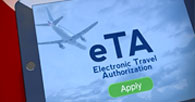
Glossary term
- Admissibility
- Skip to main content
- Skip to site information
Language selection
Help us to improve our website. Take our survey !
Entering Canada
On this page, by private boat, required identification, permanent residents, travelling with children, you and the border services officer.
Whether you’re returning home or visiting, you’ll follow the same 3 steps to enter Canada:
Step 1. Pre-arrival: Use Advance Declaration or complete a Declaration Card
If you’re arriving by air at one of Canada’s participating international airports, you can save time at the border. Submit your customs and immigration declaration online using Advance Declaration up to 72 hours before you arrive in Canada.
If you choose not to submit your declaration in advance, you can complete it at an airport kiosk or eGate. If you’re landing at an airport without kiosks or eGates, you’ll receive a Declaration Card on board the aircraft or other conveyance. Read the instructions and complete the card before you arrive. Have it ready to present to Canadian officials at the airport, along with your identification and other travel documents. If you're travelling with children, please have their documentation ready as well.
If using a Declaration Card, detach and discard the instructions. To help us serve you faster, do not fold the card.
Everyone arriving in Canada must complete a declaration. You can list up to 4 people living at the same residence on one card, or 8 people per Advance Declaration submission.
The Declaration Card or Advance Declaration submission tells us what we need to know about you, your travels and what you’re bringing into the country.
Connecting to another flight
If you’re connecting to another flight or travelling on to another destination and re-boarding the same plane, follow the signs. At some airports, you may have to check your baggage and have it screened again.
If you travel frequently our trusted traveller programs can help
If you're a member of a trusted traveller program, you can skip Step 2 and go directly to the automated kiosks or eGates for faster processing.
Step 2. Arrival: First CBSA checkpoint
When you arrive at the terminal, follow the signs to the first Canada Border Services Agency (CBSA) checkpoint, also called “primary inspection.”
If you used Advance Declaration, go to a kiosk or eGate to retrieve your confirmed declaration receipt. Up to 5 people may use a kiosk as a group upon arrival.
Next, a border services officer will examine your:
- Declaration Card or Advance Declaration kiosk receipt
- your identification
- other travel documents
The officer may ask you a series of questions to determine:
- your immigration status
- the type of any goods you're bringing with you
- your duty-free allowance
- your personal exemption entitlements
Goods not properly declared that are restricted or prohibited in Canada can, under the law, be seized.
Newcomer or coming to Canada to study or work
If you’re a newcomer to Canada, coming to study or work in Canada, you may need to present further documentation. The officer will help guide you through this process. You may ask the officer for help if you don’t speak English or French well.
Step 3. Baggage and second CBSA checkpoint
Go to the baggage claim area. If you must pay duty and taxes, you can pay at most major airports while waiting for your luggage.
Once you’ve picked up your luggage:
- go to the next CBSA checkpoint
- Declaration Card, Advance Declaration kiosk or eGate receipt
- receipt, if you paid duty and taxes for your goods
The officer may direct you to a secondary inspection area.
Here, officers may ask you:
- for detailed information about your travels
- to present your luggage and goods for examination
This is a normal part of the travelling process. Your cooperation is appreciated and helps us ensure the safety of Canada, its economy and its residents.
If you’re arriving by land, follow the signs to the first checkpoint, also called “primary inspection.” Here, a border services officer will examine your identification and other travel documents and take your verbal declaration.
Visit U.S. to Canada border wait times for estimated wait times at certain locations.
If you’re arriving by private boat, go directly to a designated marine telephone reporting site and call the CBSA Telephone Reporting Centre (TRC) at 1-888-226-7277 to obtain clearance.
Private boaters that meet certain conditions may report to the CBSA by calling the TRC using cell phone from their location in Canadian waters.
Learn more about reporting requirements for private boaters.
Make sure you carry proper identification for yourself and any children travelling with you to help confirm your legal right to enter Canada. Canada has introduced a new entry requirement, known as an Electronic Travel Authorization (eTA), for certain international travellers who fly to Canada.
Read about the changes and how they may affect you.
The Government of Canada recommends that Canadian citizens travel with a valid Canadian passport because it’s the only reliable and universally accepted travel and identification document available to Canadians for the purpose of international travel.
International transportation companies such as airlines may require travellers to present a passport before boarding. Canadian citizens may face delays or may not be allowed to board the plane or other conveyance if they present other documents such as a:
- Enhanced Driver's License (EDL)/Enhanced Identification Card (EIC)
- NEXUS card (used where the program is available)
- Free and Secure Trade (FAST) card used in FAST lanes
- Canadian citizenship card
- Certificate of Indian Status
- Birth certificate in combination with either a driver's licence or a government-issued photo identification
Permanent residents (immigrants living in Canada who are not yet Canadian citizens) need a valid permanent resident card to return to Canada. Check the expiry date on your card.
Note that a Certificate of Canadian Citizenship is not a travel document.
See Canadian Citizenship for further details.
Parents who share custody of their children should bring copies of the legal custody documents to the border when travelling with their children.
A consent letter should be used for all cross-border travel when a child is travelling:
- with only 1 parent or guardian
- in the care of friends or relatives
- with a group, such as a sports, school, musical or religious group
Example of a consent letter to permit travel by a child with a single custodian or parent.
When travelling with a group of vehicles, parents or guardians should arrive at the border in the same vehicle as the children.
Adults who aren’t parents or guardians should have written permission from the parents or guardians to supervise the children. The consent letter should include addresses and telephone numbers where the parents or guardian can be reached.
Border officers watch for missing children, and may ask detailed questions about the children who are travelling with you.
You may occasionally find yourself going through a more detailed inspection. In some cases, this simply means that you may have to complete a form. In other cases, the border services officer will need to identify the goods you’re bringing into the country or examine your luggage.
Border services officers are legally entitled to examine your luggage as part of their responsibility to protect Canada's safety, economy and environment. You are responsible for opening, unpacking and repacking your luggage.
By making your goods easily accessible for inspection and having your receipts handy, you will be helping the CBSA to help you. It’s a good idea to keep all your receipts for accommodation and purchases, and for any repairs done to, or parts bought for, your vehicle. The border services officer may ask to see them as evidence of the length of your stay and of the value of the goods or repairs.
If you disagree with the amount of duty and taxes that you have to pay, please ask to speak with the CBSA superintendent on duty. A consultation can often resolve the issue quickly and without cost. If you’re still not satisfied, our officers can tell you how to make a formal appeal.
Border services officers may arrest an individual for an offence under the Criminal Code (for example, impaired driving, outstanding arrest warrants, stolen property, abductions/kidnappings) and for infractions under other acts of Parliament (for example, the Customs Act , the Immigration and Refugee Protection Act ).
If you’re arrested, you may be compelled to attend court in Canada. You should note that anyone arrested in Canada is protected by and will be treated in accordance with the Canadian Charter of Rights and Freedoms .

Related links
- Bringing goods to Canada
- Traveller entry requirements
- Travel documents
- Programs for trusted travellers
- Travelling as a dual citizen
How to visit Canada from USA

If you live in the United States and want to visit Canada , you need to make sure that you have the proper documentation . Depending on the situation, you may need to obtain a visa or other type of authorization before traveling to Canada.
This guide provides detailed information on what documents are necessary to travel from the US to Canada. Additionally, we will cover steps for getting authorized to enter the country and exploring other options for travelers.
Apply Online
In this article…
Visiting Canada from USA
Visiting Canada from the United States is a relatively easy process that can be done with either a passport or an enhanced driver’s license. The most important thing to remember is that travelers need to make sure they have the necessary documents and information to enter and exit the country.
First, all travelers must have valid identification to enter Canada. This includes either a valid passport or an Enhanced Driver’s License (EDL). An EDL is only available in certain states, so it’s important to check with your local DMV to see if you are eligible for one.
Second, travelers should also make sure they have a valid visa or eTA (Electronic Travel Authorization) before they enter Canada.
Depending on where you’re from, you may need a visa or eTA to enter the country. Citizens of the United States do not need a visa, but they must obtain an eTA before they travel.
Third, travelers should check with the Canadian government to make sure they don’t need any additional documents or paperwork when they enter the country.
For example, if you’re traveling with children, you may need to bring additional documents such as a birth certificate or guardianship papers.
Also read: How to apply for a Canada visa from USA .
Fourth, travelers should make sure they have enough money to cover their expenses while in Canada.
This includes lodging, food, and transportation costs. It’s important to plan ahead and make sure you have enough funds to cover your stay.
Finally, travelers should be aware of the restrictions and regulations for entering and exiting Canada.
There are certain items that are prohibited from entering the country, and travelers should be familiar with these rules before they arrive.
Additionally, travelers should know how long they can stay in Canada, as well as any other requirements that may apply to their stay.
Overall, visiting Canada from the United States is a relatively straightforward process.
As long as travelers have the necessary documents, information, and funds, they should have no problem crossing the border.
Also read: What do I need to visit Canada from USA?
💡 Tip: Buy travel health insurance before your trip.
Check out popular travel insurance plans and choose one that suits you.
Most plans only cost less than $20 a day.
Can a US visitor enter Canada?
Yes, a US visitor on a B1/B2 visa can enter Canada. However, they must meet certain requirements to do so.
First, they must have a valid passport and the appropriate visa. They must also have proof of financial support during their stay in Canada. Additionally, visitors must demonstrate that they will be leaving the country at the end of their visit.
In order to be admitted into Canada , US visitors with a B1/B2 visa must be able to prove that they are entering the country for a specific purpose, such as tourism, business, or medical treatment.
They must also show that they have sufficient funds to cover their expenses while in Canada. Additionally, visitors must provide proof of their ties to the US and that they intend to return there when their visit is over.
US visitors may also be required to complete an Electronic Travel Authorization (eTA) before entering Canada. This is an online form that requires basic personal information and is usually processed within minutes.
The eTA is valid for up to five years or until the visitor’s passport expires, whichever comes first.
In addition to the above, US visitors may also be subject to additional entry requirements depending on their country of origin.
For instance, some travelers may need to present proof of their immunization records, have a criminal record check, or even apply for a Temporary Resident Visa (TRV).
Overall, US visitors on a B1/B2 visa can enter Canada provided they meet all the necessary requirements. They must have a valid passport, the right visa, evidence of their ties to the US, proof of financial support, and possibly an eTA or a TRV.
Do I need a visa to go to Canada from USA?
If you are a citizen of the United States, you do not need a visa to travel to Canada . However, you will need a valid passport and possibly other travel documents to enter Canada.
When traveling by air, all U.S. citizens must present a valid passport when entering Canada. You may also need an Electronic Travel Authorization (eTA) or a visa, depending on your citizenship status.
The eTA is an electronic document that allows citizens of certain countries to travel to Canada without a visa. U.S. citizens are exempt from this requirement.
If you are traveling to Canada by land or sea, you may be asked to present additional documents such as a NEXUS card, a FAST card, or an Enhanced Driver’s License (EDL).
These cards provide proof of identity and citizenship and allow you to pass through customs more quickly.
In some cases, you may need a visa to visit Canada even if you are a U.S. citizen.
This includes if you plan to stay for longer than six months, work in Canada, or study in Canada. It is important to check the specific requirements for your situation before traveling to Canada.
When traveling to Canada, it is important to ensure that you have all the necessary documents.
Failing to have the correct documents can result in delays or even being denied entry into Canada.
Basic requirements to enter Canada from the United States
1. A valid passport or travel document. 2. Proof of residence in the United States. 3. An Electronic Travel Authorization (eTA) or a visitor visa, if applicable. 4. A valid form of payment to cover the cost of the eTA or visa application . 5. Proof of sufficient funds to cover the duration of your stay in Canada. 6. A valid return ticket or onward ticket to another country. 7. Any necessary documents related to your purpose of visit , such as a business invitation letter or a study permit.
If you are a US citizen planning to visit Canada, there are several things you should know and do in order to prepare.
You will need to bring a valid passport and may need to apply for a Temporary Resident Visa (TRV) if your stay will be longer than six months.
You may also need to have proof of sufficient funds to support yourself during your stay. Furthermore, you may need to provide proof of medical insurance .
When crossing the border, it is important to declare any goods you are bringing with you. In addition, you must also declare any firearms or ammunition.
Once in Canada, you will be subject to all Canadian laws, so it is important to familiarize yourself with them. Finally, you should also be aware of any restrictions on how long you can stay.
- How to Apply for Canada Visit Visa from USA
- What is Canada Visa & How to Apply
- Canadian Visit Visa Fees and Cost
- What Do I Need to Visit Canada from US
- What Documents are Required for Canadian Visit Visa
Apply Online easily.
Leave a reply cancel reply.
Your email address will not be published. Required fields are marked *
Save my name, email, and website in this browser for the next time I comment.
- Skip to main content
- Skip to "About this site"
- Departments
Language selection
- Search and menus
Travellers Visitors to Canada
October 1, 2022 : covid-19 emergency border measures ended.
Refer to COVID-19: Travel, testing and borders for details.
Have proper identification
You must carry proper identification for yourself and any children travelling with you to help confirm your legal right or authorization to enter Canada when you arrive.
All visitors arriving from or transiting through the United States should visit the U.S. Customs and Border Protection website for information concerning the requirements to enter, transit through, or return to the United States.
Identification requirements for U.S. citizens and permanent residents
If you are a U.S. citizen or permanent resident, you must carry proof of citizenship such as a passport, birth certificate, a certificate of citizenship or naturalization, a U.S. Permanent Resident Card, or a Certificate of Indian Status along with photo identification. If you are a U.S. permanent resident, ensure you carry proof of your status such as a U.S. Permanent Resident Card.
For members of a Trusted Traveller program
U.s. citizens.
U.S. citizens who are members of the NEXUS program can use their membership card as proof of identification and citizenship when entering Canada by land, air or water. This applies when you are using either conventional or NEXUS-only lanes. U.S. citizens who are members of FAST may use their membership card when entering Canada by land or water only. When travelling by air, FAST cards will only be accepted as proof of identification when you are travelling to Canada from the U.S.
U.S. permanent residents
NEXUS and FAST members who are permanent residents of the U.S. must still travel with a passport and proof of permanent residence. You may be asked to present these documents to the Border Services Officer ( BSO ) when you arrive at the border.
No matter your mode of travel, we recommend you carry a valid passport for all travel abroad, including visits to Canada from the United States. A passport may be required by your airline or other transportation authority, since it is the only universally-accepted, identification document.
Identification requirements for international visitors
All international travellers must carry acceptable identification and a valid visa (if necessary) when entering Canada. A passport is recommended because it is the only reliable and universally-accepted travel and identification document for the purpose of international travel.
Electronic Travel Authorization
Visa-exempt foreign nationals need an Electronic Travel Authorization (eTA) to fly to or transit through Canada. Exceptions include U.S. citizens, U.S. Lawful Permanent Residents (USLPR) and travellers with a valid Canadian visa. Canadian citizens, including dual citizens , and Canadian permanent residents cannot apply for an eTA.
Certain low-risk foreign nationals from select visa-required countries may also travel to or through Canada by air using an eTA through the eTA expansion program .
Foreign nationals from select visa-required countries may also travel to or through Canada by air using an eTA, if eligible .
Be prepared: Apply for an eTA before you book your flight to Canada. Most applicants get approved within minutes. However, some applications can take several days to process so don’t wait until the last minute. Get help if you have questions before, during or after you apply.
Fake websites
Travellers who apply for an eTA are advised to be cautious in all dealings with companies that claim to offer help in getting an eTA. These companies are not operating on behalf of the Government of Canada. Many have established websites that charge a fee to provide information and submit eTA applications.
This Government of Canada website is the official place to apply for an eTA .
Travelling with minors
BSOs watch for missing persons , and may ask detailed questions about any minors travelling with you.
Visit the Children and travel page for more information about travelling abroad with minors.
What you can bring with you
As a visitor, you can bring certain goods into Canada for your own use as personal baggage. Personal baggage includes clothing, camping and sports equipment, cameras and personal computers. This also includes your mode of transportation, including vehicles, private boats and aircraft.
You must declare all goods when you arrive at the first CBSA port of entry. Our BSO s check goods you are bringing in or taking out of Canada to verify what you have declared. If you declare goods when you arrive and take them back with you when you leave, you will not have to pay any duty or taxes. These goods cannot be:
- used by a resident of Canada;
- used on behalf of a business based in Canada;
- given as a gift to a Canadian resident; or
- disposed of or left behind in Canada.
The BSO may ask you to leave a security deposit for your goods. Your deposit will be refunded when you leave Canada with the goods. If this happens, you will be issued a Temporary Admission Permit. We will keep a copy and give you one for your records. When you leave Canada, bring your goods and your copy of the Temporary Admission Permit, to the BSO . You will get a receipt and your security deposit will be refunded by mail.
Making your declaration
Every traveller entering Canada must report to a border services officer and answer all their questions truthfully. Travellers must also report goods they are bringing with them, including food, plant and animal products.
To ensure a smooth border crossing, have all required identification and travel documents in hand. Be ready to make a full and accurate declaration, including the amount of goods in Canadian dollars you are bringing with you.
If you arrive by land, follow the signs to the first checkpoint. A border services officer will check your identification and other travel documents and you will answer their questions.
If you arrive by private boat, go directly to a designated marine telephone reporting site and call the Telephone Reporting Centre ( TRC ) at 1-888-226-7277 to get clearance. For more information, visit the Private boaters page.
If you arrive at one of Canada's main airports , you can complete your customs and immigration declaration your before arrival with Advance Declaration.
At the airport kiosk or eGate, you will scan your travel document and verify your identity. The device will print your declaration and you will bring it to a border services officer.
If you arrive at a smaller Canadian airport, without a kiosk or eGate, you must fill out a paper E-311 CBSA Declaration Card prior to arrival and present it to a border services officer.
Use Advance Declaration and save time!
Submit your customs and immigration information with Advance Declaration up to 72 hours before you arrive in Canada using your smart phone or your computer. When you use Advance Declaration, you can access express lanes in the arrivals hall. Data shows that it’s up to 50% faster at the airport kiosk or eGate.
Instructions on how to complete the card are attached to the form. You can list up to four people living at the same residence on one card. If there are more than four people living at your address use one additional card for each additional group of four or fewer people. Once the cards are complete you can detach and discard the instructions. Do not fold the card.
Be sure to keep the card handy along with your identification and other travel documents. You will be asked to show this card to our BSOs several times.
If you have any questions about the card or Canadian regulations, ask the BSO when you arrive.
Referrals for secondary services and inspections
At any point during your interactions with our BSOs at a port of entry, you may be referred to our secondary services and inspections area.
We understand that travellers may feel anxious when crossing the border. Referrals to secondary inspection are a normal part of the cross-border travel process that any visitor to Canada may experience.
Why you may be referred to secondary inspection
You may be referred to secondary inspection for a variety of reasons, for example:
- carrying out a random inspection;
- verifying your declaration or documentation;
- asking you more in-depth questions about yourself or inspecting your goods;
- determining your admissibility to Canada or the admissibility of the goods in your possession;
- having you pay duty and taxes;
- completing or processing paperwork to support your entry or the entry of your goods to Canada.
All travellers are protected by the Canadian Charter of Rights and Freedoms . Referrals are not made on any discriminatory basis, such as race, nationality, religion, age or gender.
What to expect from secondary inspections
If you are referred for Secondary Services or Inspection, an officer may:
- ask you to provide detailed information about your plans while visiting Canada, or the time you spent abroad;
- make further enquiries, check records, or conduct research to verify your declaration;
- confirm the guardianship of children travelling with you;
- process the payment of duty and taxes;
- inspect your luggage, purse or wallet, electronics (including laptops and cell phones), your vehicle and any additional goods you are transporting;
- examine visually your pet or any animals travelling with you;
- ask you to produce evidence of the money you have available to fund your visit to Canada;
- request that you produce receipts to account for expenses you incurred or purchases made abroad; or
- count your cash or travellers cheques, in your presence.
While most travellers we inspect comply with Canadian laws and regulations, we do encounter individuals who are intent on breaking the law and who attempt to avoid detection. That is why the officer may not always answer specific questions about a Secondary Inspection.
Travelling with alcohol and tobacco
Alcoholic beverages.
You are allowed to bring into Canada only one of the following amounts of alcohol and alcoholic beverages free of duty and taxes:
Alcoholic beverages are products that exceed 0.5% alcohol by volume. Certain alcoholic and wine products that do not exceed 0.5% by volume are not considered alcoholic beverages.
You must meet the minimum age of the province or territory where you enter Canada. Minimum ages are established by provincial or territorial authorities: 18 years for Alberta, Manitoba and Quebec and 19 years for the remaining provinces and territories.
The CBSA classifies "cooler" products according to the alcoholic beverage they contain. For example, beer coolers are considered to be beer and wine coolers are considered to be wine.
The quantities of alcoholic beverages you can import must be within the limit set by provincial and territorial liquor control authorities that apply where you will enter Canada. If the amount of alcohol you want to import exceeds your personal exemption, you will be required to pay the duty and taxes as well as any provincial or territorial levies that apply. Contact the appropriate provincial or territorial liquor control authority for more information before you return to Canada.
You must be of legal age in the province of importation. While you are allowed to import more alcoholic beverages than the amounts listed above, you will be responsible for paying duty and taxes on the additional alcoholic beverages you are bringing into Canada.
For more information on bringing alcoholic beverages to Canada, consult the Alcohol and tobacco limits page.
Tobacco products
As a visitor or a temporary resident, you may bring into Canada, free of duty and taxes, all of the following amounts of tobacco products, as long as these items are in your possession when you arrive in Canada:
You can speed up your clearance by having your tobacco products available for inspection when you arrive.
Whether they are stamped or unstamped, if you bring in tobacco products that exceed your personal exemption, you will be required to pay the regular duty and taxes as well as any provincial or territorial levies that apply on the excess amount.
Note: You must be 18 years of age to bring tobacco products into Canada under your personal exemption.
Stamped Tobacco Products – Personal exemption amounts
If you wish to import cigarettes, manufactured tobacco and tobacco sticks duty free as part of your personal exemption, the packages must be stamped " duty paid Canada droit acquitté ". You will find tobacco products sold at duty-free stores marked this way.
Unstamped Tobacco Products – Special duties rate
A special duty rate applies to cigarettes, manufactured tobacco and tobacco sticks that are not stamped " duty paid Canada droit acquitté".
For example, if you claim a carton of 200 cigarettes as part of your personal exemption and it is not stamped " duty paid Canada droit acquitté", you will be assessed at a special duty rate.
Unstamped Tobacco Products – Import limits
In addition to your personal exemption amounts, there are limits on the quantity of tobacco products that may be imported if it is not packaged and not stamped " duty paid Canada droit acquitté ". The limit is currently five units of tobacco products. One unit of tobacco products consists of one of the following:
For short visits, these quantities may be limited to amounts that are appropriate in respect of the nature, purpose, and duration of the visit.
Restricted/prohibited goods
Certain goods are restricted or prohibited in Canada. To avoid the possibility of penalties, including seizure or prosecution, make sure you have the information you need before attempting to bring items into Canada.
The following are some examples of restricted or prohibited goods:
- Firearms and weapons : You must declare all weapons and firearms at the CBSA port of entry when you enter Canada.
- Food, plants, animals and related products : All food, plants, animals, and related products must be declared. Food can carry disease, such as E. coli. Plants and plant products can carry invasive alien species, such as the Asian Long-Horned Beetle. Animals and animal products can carry diseases, such as avian influenza and foot-and-mouth disease.
- Explosives, fireworks and ammunition : You must have written authorization and permits to bring explosives, fireworks and certain types of ammunition into Canada.
- Vehicles : Vehicles include any kind of pleasure vehicles such as passenger cars, pickup trucks, snowmobiles and motor homes, as long as you use them for non-commercial purposes. There are many requirements that apply to importing a vehicle .
- Consumer products : Certain consumer products that could pose a danger to the public (e.g., baby walkers, jequirity beans that are often found in art or bead work) are not allowed to be brought into Canada. Canadian residents should be aware of consumer products that have safety requirements in Canada . Many of these safety requirements are stricter than requirements of other countries.
For more information consult the Restricted and Prohibited Goods page.
Travelling with CAN$10,000 or more
If you have currency or monetary instruments equal to or greater than CAN$10,000 (or the equivalent in a foreign currency) in your possession when arriving in or departing from Canada, you must report to the CBSA. Monetary instruments include items such as stocks, bonds, bank drafts, cheques, and travellers' cheques.
This regulation applies to currency and monetary instruments you have on your person, in your baggage and/or in your vehicle.
When you arrive in Canada with CAN$10,000 or more in your possession, you must report it on the CBSA Declaration Card (if one was provided to you), or in the verbal declaration made to a BSO.
When you leave Canada by air with CAN$10,000 or more in your possession, you must report to the CBSA office within the airport, before clearing security or, if leaving by land or boat, report your intent to export to the CBSA at one of our offices.
For more information, including instructions on how to report your intent to import or export currency in person, by mail, or by courier, you can consult Travelling with CAN$10,000 or more .
Travelling with gifts
If you are travelling with gifts, do not wrap them before crossing the border. If a gift is wrapped, a BSO may need to un-wrap the gift to examine the goods you are bringing into Canada.
Can I enter Canada?
Why some people cannot enter or remain in canada.
There are a number of reasons you can be found inadmissible, denied a visa or refused entry to Canada such as:
- Human or international rights violations
- Criminality
- Organized criminality
- Health grounds
- Financial reasons
- Misrepresentation
- Non-compliance with the Immigration and Refugee Protection Act (IRPA).
- Having an inadmissible family member
Visit the Determine your eligibility page for more information.
Ministerial relief
If you have been found inadmissible to Canada on grounds of security, certain provisions relating to human or international rights violations, or organized criminality, you may request that the Minister of Public Safety and Emergency Preparedness (the Minister) make a declaration of relief under subsection 42.1(1) of the Immigration and Refugee Protection Act (IRPA) if the Minister is satisfied that doing so is not contrary to the national interest. This process is commonly referred to as Ministerial relief.
You may apply for Ministerial relief using BSF766. Refer to the Guide to Applying for a Declaration of Relief Under Subsection 42.1(1) of the Immigration and Refugee Protection Act .
Overcome criminal convictions
Depending on the crime, how long ago it was committed, and how you have behaved since the conviction, you may still be allowed to come to Canada, if you:
- convince an immigration officer that you meet the legal terms to be deemed rehabilitated, or
- applied for rehabilitation and were approved, or
- were granted a record suspension, or
- have a temporary resident permit.
Visit the Overcome criminal convictions page for more information.
Resources for visitors
- Come to Canada to settle, study or work
- Refugees (Immigration, Refugees and Citizenship Canada website)
Several US airports drop in passenger rankings as international travel booms
The u.s. travel association suggests that domestic travel may have already peaked in its rebound from the covid-19 pandemic, while significant growth is occurring in international travel..

How to avoid airport delays
FlightAware travel expert Kathleen Bangs explains what passengers can do to minimize the impacts of delays and cancellations.
ATLANTA – Atlanta’s Hartsfield-Jackson International has maintained its ranking as the busiest airport in the world, but changes in the travel industry have caused other airports to gain momentum in passenger throughput.
Airports Council International (ACI) World recently unveiled its annual list of the top ten busiest airports, which span three continents and include half in the U.S.
While Hartsfield-Jackson International retained its position, all other U.S. cities on the list fell at least one position.
Dallas-Fort Worth International came in at No. 3, Denver placed at No. 6, Los Angeles at No. 8 and Chicago at No. 9.
Dubai International Airport jumped to second place for the first time, while Tokyo Haneda International Airport witnessed a remarkable ascent from 16th position in 2022 to 5th in 2023.
WHAT ARE THE BUSIEST TRAVEL DAYS OF THE YEAR?
Denver International Airport said despite the decrease in its world ranking, the airport reported its busiest year ever.
"During the year, DEN’s carriers served 77,837,917 passengers, a 12.3% increase over the 69,286,461 passengers served in 2022, the previous record," a statement from the airport said. "2023 is the first year in history DEN served more than 70 million annual passengers."
The world’s busiest airport accounted for about 10% of the estimated 860 million in foot traffic.
Airport rankings were based on data from more than 2,600 facilities around the world in some 180 countries.
HOW THUNDERSTORMS HUNDREDS OF MILES AWAY CAN WREAK HAVOC ON AIR TRAVEL
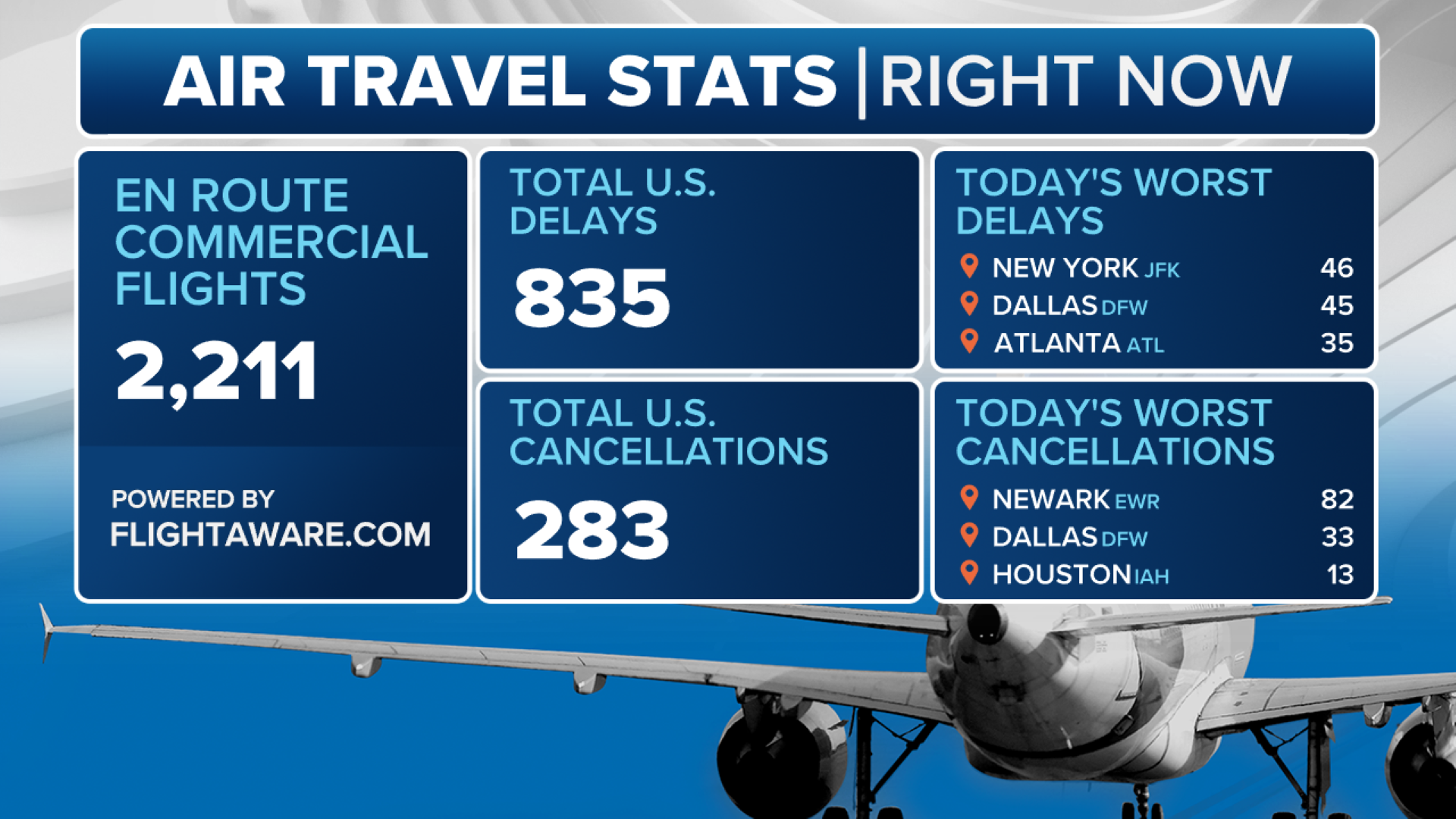
International travel drives numbers in 2023
Travel experts suggest that a strong dollar, visa wait times and other global macroeconomic issues have fueled a surge in air travel outside the U.S.
Airports in Dubai , London, Tokyo, Istanbul and New Delhi all made the list of the busiest in the world.
Each region has a unique culture and climate but is generally considered safe on the U.S. State Department’s travel advisory list.
"Global air travel in 2023 was chiefly fueled by the international segment, propelled by several factors," Luis Felipe de Oliveira, the world director of ACI World, said in a statement. "Among these were the anticipated benefits from China’s reopening and a growing inclination towards travel despite macroeconomic conditions."
Despite jumps in travel in countries around the world, none came close to eclipsing Atlanta’s 104.7 million passengers serviced in 2023.
Dubai’s second-place ranking was based on a passenger throughput of 87 million, up about 32% from just a year ago.

See it: Dubai swamped by 2 years of rain in one day
Dubai, a desert city, has been inundated by a strong Persian Gulf storm which crippled the city. So far they have seen 6.26 inches of rain on Tuesday while the yearly average is only 3.14 inches.
- Middle East
US airlines did better with mobility devices in 2023: Here's how each performed
U.S. airlines got a little bit better with mobility devices in 2023. The 10 major carriers transported 835,327 wheelchairs and other aids last year, and there were 11,527 reports of damage, according to the Department of Transportation. That’s a rate of 1.38 devices damaged per 100 carried, down from 1.41 per 100 in 2022.
USA TODAY covered incidents of mobility device damage by airlines throughout 2023, and a recurring theme in the reporting was that when wheelchairs or other mobility devices are damaged in transit, it’s akin to broken legs for the person who uses the device.
The DOT tracks these incidents and released full-year numbers in February. The data showed a slight improvement in wheelchair handling across the industry, but for advocates and regulators, it’s still not enough.
“Any number greater than zero is not an acceptable number,” Transportation Secretary Pete Buttigieg previously told USA TODAY . “This not only affects your trip, it affects your life.”
How many mobility devices did the major U.S. airlines mishandle last year?
Here’s are the rankings:
- Allegiant Air carried 21,926 mobility devices in 2023, and there were 82 reports of mishandling – a rate of 0.37 per 100.
- Delta Air Lines and its regional partners carried 189,263 mobility devices in 2023, and there were 1,292 reports of mishandling – a rate of 0.68 per 100.
- United Airlines and its regional partners carried 152,549 mobility devices in 2023, and there were 1,761 reports of mishandling – a rate of 1.15 per 100.
- Hawaiian Airlines carried 12,270 mobility devices in 2023, and there were 148 reports of mishandling – a rate of 1.21 per 100.
- JetBlue carried 29,965 mobility devices in 2023, and there were 482 reports of mishandling – a rate of 1.61 per 100.
- Southwest Airlines carried 212,721 mobility devices in 2023, and there were 3,460 reports of mishandling – a rate of 1.63 per 100.
- American Airlines and its regional partners carried 146,061 mobility devices in 2023, and there were 2,589 reports of mishandling – a rate of 1.77 per 100.
- Alaska Airlines and its regional partners carried 30,918 mobility devices in 2023, and there were 568 reports of mishandling – a rate of 1.84 per 100.
- Frontier Airlines carried 28,125 mobility devices in 2023, and there were 528 reports of mishandling – a rate of 1.88 per 100.
- Spirit Airlines carried 11,529 mobility devices in 2023, and there were 617 reports of mishandling – a rate of 5.35 per 100.
Frontier Airlines did not provide comments about their performance. Still, Delta, United, Hawaiian, JetBlue, American, Alaska and Southwest all emphasized that they understand the importance of mobility devices to the travelers who rely on them and pointed out various investments and improvements they have made toward accessibility in recent years.
Spirit Airlines, which had notably worse performance than its competitors, said it aims to improve but did not outline specific steps it was taking.
“We are committed to safely transporting our guests and their mobility devices, and we are looking into this to ensure that the level of service being provided consistently meets our standards,” a statement from the airline said.
Zach Wichter is a travel reporter for USA TODAY based in New York. You can reach him at [email protected].
- Credit cards
- View all credit cards
- Banking guide
- Loans guide
- Insurance guide
- Personal finance
- View all personal finance
- Small business
- Small business guide
- View all taxes
You’re our first priority. Every time.
We believe everyone should be able to make financial decisions with confidence. And while our site doesn’t feature every company or financial product available on the market, we’re proud that the guidance we offer, the information we provide and the tools we create are objective, independent, straightforward — and free.
So how do we make money? Our partners compensate us. This may influence which products we review and write about (and where those products appear on the site), but it in no way affects our recommendations or advice, which are grounded in thousands of hours of research. Our partners cannot pay us to guarantee favorable reviews of their products or services. Here is a list of our partners .
Can Americans Travel to Canada?

Many or all of the products featured here are from our partners who compensate us. This influences which products we write about and where and how the product appears on a page. However, this does not influence our evaluations. Our opinions are our own. Here is a list of our partners and here's how we make money .
Editor's note: Effective Oct. 1, 2022 all previous border measures to enter Canada have ended.
Traveling in the COVID era comes with all sorts of questions, logistics and concerns that travelers didn't think about before 2020. Traveling to Canada, despite its proximity to the U.S., has been no different.
In March 2020, the U.S. and Canada both closed their land borders to nonessential travel due to COVID-19. What started as a monthlong closure was extended 18 times.
So, if you gave up following the news or tracking border rules, you might be wondering: Can Americans travel to Canada? As of Oct. 1, the answer is yes, with no COVID-related restrictions.
Here's what Americans need to know about traveling to Canada.
What do Americans need to enter Canada?
As a U.S. citizen, you will need to provide proof of citizenship and identity to enter Canada. This can include a U.S. passport , passport card or a NEXUS card . No visa is required as long as your stay is under 180 days.
While the border between the U.S. and Canada reopened for nonessential travel in both directions in November 2021, several COVID-related protocols remained in place for entry until October 2022. Those rules have now been lifted.
Do you need to be vaccinated to enter Canada?
According to the Canadian government travel website, vaccination is no longer required to enter the country.
Previous policies including mandatory use of the ArriveCAN app, proof of vaccination, pre- or on-arrival testing, quarantine and health checks have also been lifted.
» Learn more: How to travel to Toronto on points and miles
Do you have to wear a mask on a plane to Canada?
In mid-2022, many Americans may have been surprised to find that they were required to wear a mask on all flights to and from Canada (flights throughout the U.S. had lifted that restriction). However, as part of the Oct. 1 policy changes, masks are no longer required on planes or trains in Canada.
Can unvaccinated people travel to Canada?
As of Oct. 1, 2022, you can travel to Canada unvaccinated as travel restrictions have been lifted.
» Learn more: TSA PreCheck or Global Entry — Which is right for you?
If you’re planning to travel to Canada
Travel to Canada is back to pre-pandemic rules which simply require U.S. citizens to provide valid proof of citizenship and identification using a passport, passport card or NEXUS card for stays under 180 days. Standard customs and immigration paperwork will still be required, as has always been the case for travel into Canada.
How to maximize your rewards
You want a travel credit card that prioritizes what’s important to you. Here are our picks for the best travel credit cards of 2024 , including those best for:
Flexibility, point transfers and a large bonus: Chase Sapphire Preferred® Card
No annual fee: Bank of America® Travel Rewards credit card
Flat-rate travel rewards: Capital One Venture Rewards Credit Card
Bonus travel rewards and high-end perks: Chase Sapphire Reserve®
Luxury perks: The Platinum Card® from American Express
Business travelers: Ink Business Preferred® Credit Card

on Chase's website
1x-5x 5x on travel purchased through Chase Travel℠, 3x on dining, select streaming services and online groceries, 2x on all other travel purchases, 1x on all other purchases.
60,000 Earn 60,000 bonus points after you spend $4,000 on purchases in the first 3 months from account opening. That's $750 when you redeem through Chase Travel℠.

1.5%-6.5% Enjoy 6.5% cash back on travel purchased through Chase Travel; 4.5% cash back on drugstore purchases and dining at restaurants, including takeout and eligible delivery service, and 3% on all other purchases (on up to $20,000 spent in the first year). After your first year or $20,000 spent, enjoy 5% cash back on travel purchased through Chase Travel, 3% cash back on drugstore purchases and dining at restaurants, including takeout and eligible delivery service, and unlimited 1.5% cash back on all other purchases.
$300 Earn an additional 1.5% cash back on everything you buy (on up to $20,000 spent in the first year) - worth up to $300 cash back!

on Capital One's website
2x-5x Earn unlimited 2X miles on every purchase, every day. Earn 5X miles on hotels and rental cars booked through Capital One Travel, where you'll get Capital One's best prices on thousands of trip options.
75,000 Enjoy a one-time bonus of 75,000 miles once you spend $4,000 on purchases within 3 months from account opening, equal to $750 in travel.

Language selection
- Français fr
Appendix B: Meals and Allowances
Effective: April 1, 2024
The meal rates are reviewed every six (6) months and resulting revisions, if any, are effective as of April 1 and October 1.
Travellers will receive seventy-five percent (75%) of the meal and incidental expense allowances starting on the 31st consecutive calendar day and fifty percent (50%) of the meal allowance on the 121st consecutive calendar day onwards at the same duty travel location when corporate residences or furnished apartments are available to travellers in the area surrounding the duty travel location, or when travellers choose to stay in private accommodation.
1. Travel in Canada
2. travel in usa.
Rates in the USA are the same as in Canada but paid in US funds.
3. Locations in Nunavut
- Arviat (formerly Eskimo Point)
- Cambridge Bay
- Cape Dorset
- Chesterfield Inlet
- Clyde River
- Coral Harbour
- Grise Fiord
- Kimmirut (formerly Lake Harbour)
- Kugaaruk (fomerly Pelly Bay)
- Pangnirtung
- Qikiqtarjuaq (formerly Broughton Island)
- Rankin Inlet
- Repulse Bay
- Sanikiliuaq
- Taloyoak (formerly Spence Bay)
Page details

These 5 US airports ranked among 2023’s busiest worldwide: report
D ENVER ( KDVR ) — If you’re late to your flight, or just trying to get out of the airport after a long trip, there may be nothing worse than seeing a busy terminal.
There are, of course, some airports that are busier than others, including five U.S. airports that recently ranked among the 10 busiest in the world.
Earlier this week, the Airports Council International (ACI) released its preliminary rankings for the world’s busiest airports in 2023 based on total passenger traffic.
Globally, the report says figures show there were nearly 8.5 billion passengers served in 2023, up more than 27% from 2022. No airport enplaned and deplaned more passengers than Hartsfield-Jackson Atlanta International Airport, which retained its No. 1 ranking for another year.
According to ACI, the Atlanta airport saw more than 104.7 million passengers in 2023, or roughly 18 million more than second-ranked Dubai International Airport.
Dubai edged out the Dallas Fort Worth International Airport by roughly 5 million passengers.
The other U.S. airports landing among the top 10 were:
- No. 6 — Denver International: 77.8 million passengers
- No. 8 — Los Angeles International: 75.1 million passengers
- No. 9 — Chicago O’Hare International: 73.9 million passengers
Rounding out the list were airports in London, Tokyo, Istanbul, and New Delhi.
Denver and Chicago, meanwhile, had actually fallen in the rankings since 2022, when they were ranked third and fourth, respectively.
O’Hare saw an 8.1% increase in passengers between 2022 and 2023, according to the Chicago Department of Aviation. In a March press release , officials said it marked a four-year high as “sustained passenger growth continues” at O’Hare.
Denver International saw its busiest year on record in 2023 , serving more than 70 million annual passengers for the first time in history. Meanwhile, the airport also saw international travel spike and had its first month with over 7 million passengers .
But, for both airports, the growth wasn’t enough to out-rank the busiest.
“The continued recovery of travel demand across other regions of the world has attributed to DEN’s drop in the 2023 worldwide rankings,” Denver International said in a press release.
No U.S. airports ranked among the top 10 for international passengers served. When it came to cargo transported, however, the U.S. dominated the top 10, with airports in Memphis, Tennessee; Anchorage; Louisville, Kentucky; Miami; and Los Angeles landing on the list. Memphis came in second behind Hong Kong.
Eight U.S. airports ranked among those with the most “aircraft movements,” or landings and takeoffs: Atlanta, Chicago (O’Hare), Dallas Fort Worth, Denver, Las Vegas, Los Angeles (LAX), Charlotte, and New York (JFK).
You can view the ACI’s preliminary report here .
If you’re hoping for an on-time flight, you may not want to turn to any of the busiest U.S. airports, based on a recent report from Cirium. The aviation analytics company found that, in 2023, it was Minneapolis-St. Paul International that had the most on-time departures .
Of the busiest airports outlined by ACI, Los Angeles International ranked the highest, with nearly 80% of flights departing on time last year. Hartsfield-Jackson Atlanta ranked as No. 20 on Cirium’s list, but was close behind at 78.89% of departures being on-time.
For the latest news, weather, sports, and streaming video, head to KVEO-TV.
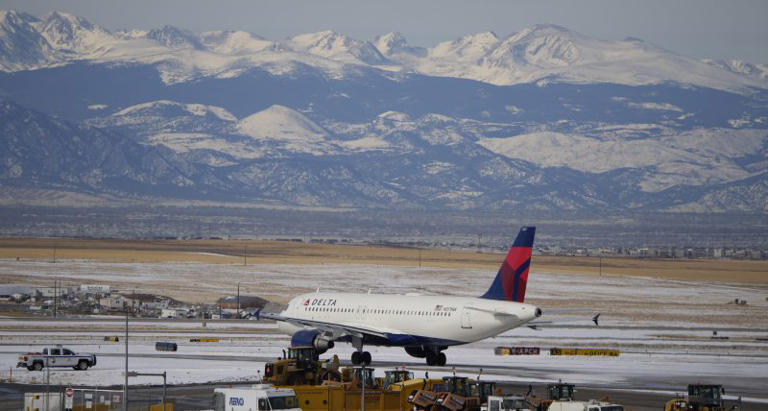

IMAGES
COMMENTS
However, travellers entering the United States in certain business-related categories are required to present specific documents to establish eligibility for admission. If you plan to work in the United States, contact the nearest U.S. embassy or consulate for specific requirements. Foreign Representatives in Canada. Studying in the United States
Canada initially started reopening for tourism in summer 2021. As of September 2021, fully vaccinated foreign travelers have been allowed to visit the country without undergoing quarantine. Canada began COVID-19 vaccination in December 2020. Currently, more than 3/4 of the total population has been fully vaccinated.
As of March 2023, a full three years after the first travel restrictions were imposed on Canadians, the Canada Border Services Agency (CBSA) and U.S. Customs and Border Protection (CBP) have still ...
Plan your trip across the border. Every year, millions of Canadian citizens and visitors travel across our Canadian borders. Everyone wants their border crossing to go smoothly with fewer delays. The best way to make sure this happens is to know what to expect and be prepared.
Government of Canada's official one-stop-shop for comprehensive international travel information. ... 2023-10-31. About this site. Travel and tourism. Contact us; Government of Canada. All contacts; Departments and agencies; About government; Themes and topics. Jobs;
Almost a million individuals enter the U.S. daily. Everyone arriving at a port of entry to the U.S. is subject to inspection by Customs and Border Protection officers for compliance with immigration, customs and agriculture regulations. The more international travelers know about what to expect, the easier and quicker the process becomes. Last ...
Checklist for a U.S.-Canada border crossing. If you're fully vaccinated and traveling to Canada, whether by car, plane or boat, you still have to follow certain protocols. To meet entry ...
12/24/2023 07:00 AM EST. OTTAWA — It was a polite Canadian warning from a close friend and neighbor. But Canada's updated travel advisory to its citizens, counseling them to be careful about ...
This section contains detailed information for people interested in traveling to the United States. In Canada, the U.S. Government issues visas from its Embassy and six consulates located throughout the country. Canadians typically do not require visas to enter the United States, although there are some exceptions.Citizens of certain other countries also do not require entry visas to visit the ...
COVID-19 testing and vaccine rules for entering the U.S. As of May 12, 2023, noncitizen nonimmigrant visitors to the U.S. arriving by air or arriving by land or sea no longer need to show proof of being fully vaccinated against COVID-19. As of June 12, 2022, people entering the U.S. no longer need to show proof of a negative COVID-19 test .
On June 6, 2023, the Honourable Sean Fraser, Minister of Immigration, Refugees and Citizenship, announced the addition of 13 countries to the electronic travel authorization (eTA) program. Travellers from these countries who have either held a Canadian visa in the last 10 years or who currently hold a valid United States non-immigrant visa can now apply for an eTA instead of a visa when ...
While Canada still considers the United States the lowest risk level a country can have, it updated its advisory page on May 26, 2023 with new information about the country's widespread gun violence, warning travelers to be vigilant and review what to do in the case they get caught in the fire. "The rate of firearm possession in the US is high.
Effective August 9, 2021, U.S. citizens and permanent residents who currently reside in the United States, and who qualify as fully vaccinated travelers, will be able to enter Canada from the United States for discretionary travel (e.g., tourism) without quarantining provided they satisfy certain requirements.
Call us in Washington, D.C. at 1-888-407-4747 (toll-free in the United States and Canada) or 1-202-501-4444 (from all other countries) from 8:00 a.m. to 8:00 p.m., Eastern Standard Time, Monday through Friday (except U.S. federal holidays). See the State Department's travel website for the Worldwide Caution and Travel Advisories.
If you are an American citizen who wants to enter Canada, you need to know the requirements and procedures for crossing the border. This webpage provides you with the information on what documents you need, how to apply for an eTA or a visa, and what to expect upon arrival. You can also find links to other useful resources on health, taxes, and benefits in Canada.
Everyone wants their border crossing to go smoothly with few delays. The best way to make sure this happens is to know what to expect and be prepared. Whether you're returning home or visiting, Canada Border Services Agency ( CBSA) wants to help you plan your trip across the border with some useful tools.
Lawful permanent residents of the U.S. As of April 26, 2022, lawful permanent residents of the United States must show these documents for all methods of travel to Canada: a valid passport from their country of nationality (or an equivalent acceptable travel document) and. a valid green card (or equivalent valid proof of status in the United ...
Step 1. Pre-arrival: Use Advance Declaration or complete a Declaration Card. If you're arriving by air at one of Canada's participating international airports, you can save time at the border. Submit your customs and immigration declaration online using Advance Declaration up to 72 hours before you arrive in Canada.
Basic requirements to enter Canada from the United States. 1. A valid passport or travel document. 2. Proof of residence in the United States. 3. An Electronic Travel Authorization (eTA) or a visitor visa, if applicable. 4. A valid form of payment to cover the cost of the eTA or visa application.
No matter your mode of travel, we recommend you carry a valid passport for all travel abroad, including visits to Canada from the United States. A passport may be required by your airline or other transportation authority, since it is the only universally-accepted, identification document. Identification requirements for international visitors
Welcome, U.S. Nonimmigrant Visa Applicants. You are at the official nonimmigrant (temporary) visa information and appointment website for the U.S. Embassy in Canada. Select this option if you have never used this site before and you have completed a DS-160 https://ceac.state.gov/genniv. Select this option to continue or review an existing visa ...
CNN —. The Canadian government is warning its LGBTQ citizens of risks they could face when traveling to the US, citing new laws in several states. "Some states have enacted laws and policies ...
International travel drives numbers in 2023. Travel experts suggest that a strong dollar, visa wait times and other global macroeconomic issues have fueled a surge in air travel outside the U.S.. Airports in Dubai, London, Tokyo, Istanbul and New Delhi all made the list of the busiest in the world.. Each region has a unique culture and climate but is generally considered safe on the U.S. State ...
Today's total solar eclipse, the first in North America since 2017, will travel over portions of northern Mexico, thousands of miles of the U.S. and the maritime provinces of Canada, according to ...
U.S. airlines got a little bit better with mobility devices in 2023. The 10 major carriers transported 835,327 wheelchairs and other aids last year, and there were 11,527 reports of damage ...
Globally, passenger traffic in 2023 grew by 27% from 2022 to reach nearly 94% of 2019 results, with domestic travel rebounding more quickly from the pandemic — growing by 20% from 2022 to reach ...
The Princess Royal will travel to Canada from May 3 to 5 on an official visit to the Commonwealth country. ... In May 2023 the princess travelled to Canada to mark the 175th anniversary of the 8th ...
As a U.S. citizen, you will need to provide proof of citizenship and identity to enter Canada. This can include a U.S. passport, passport card or a NEXUS card. No visa is required as long as your ...
Travellers will receive seventy-five percent (75%) of the meal and incidental expense allowances starting on the 31st consecutive calendar day and fifty percent (50%) of the meal allowance on the 121st consecutive calendar day onwards at the same duty travel location when corporate residences or furnished apartments are available to travellers in the area surrounding the duty travel location ...
Globally, the report says figures show there were nearly 8.5 billion passengers served in 2023, up more than 27% from 2022. No airport enplaned and deplaned more passengers than Hartsfield-Jackson ...